ADMISSION HELPLINE

As an emerging hub of education of the country, the spirit of inter-and multi-disciplinarity permeates every aspect of academics at RGU. The doctoral programme at RGU seeks to develop the next generation of academics who can approach issues from multiple perspectives, glean unique insights, and provide effective solutions to pressing problems of academic and practical interest. RGU PhD Programme carries a strong emphasis on foundational knowledge, academic research, and hands-on experiences with real-world challenges. RGU envisions a future where researchers combine curiosity based intellectual pursuits with a strong commitment to solving complex problems with societal impact. However, the university is an ecosystem that creates opportunities for students based on their interests.
In particular, RGU doctoral programme aims to train the researchers who extend the boundaries of current knowledge and are also able to create new knowledge, are adept in the use of traditional methodologies and latest tools and build on these to develop new techniques to answer questions that transcend disciplinary boundaries, can communicate clearly and effectively to the expert and the public at large the insights gleaned from the research, can apply the skills and knowledge in practical contexts.
RGU’s APPROACH
RGU aspires to be recognized for the quality and impact of its research output on the current state of knowledge. Towards this goal, it will strive to provide an environment where cutting-edge research is done by a community of scholars where the focus is placed on conceptual clarity and the utilization and development of new methodologies that are employed not only to illuminate the issue under study but also in a wide range of contexts. PhD scholars will work, through collaborations and joint projects, on real-world issues in close association with outside organizations/industries and apply appropriate and innovative methodologies to address their problems.
The structure of the PhD programme includes a mandatory coursework and candidates are encouraged to take up a wide variety of courses to cultivate a cross-disciplinary outlook. The topic of research is expected to be inter-disciplinary with emphasis on practical impact that is inspired by real world problems or sponsored by industry. The output is expected to address a gap or add something new to the existing corpus of literature. A PhD scholar is not only preparing to be a researcher but also a teacher as teaching is integral to effective learning.
With the spirit of liberal inquiry governing every aspect of academic life, accomplished faculty, emphasis on work-life balance, a close and supportive environment, and access to world-class facilities, being a research scholar at
RGU will be an enriching, and productive experience.
1. Title: The Assam Royal Global University Regulations for the programme for Doctor of Philosophy (Ph.D.) under Ordinance Number 4
1.1. The provisions embodied in these regulations shall be called the “The Assam Royal Global University Regulationsfor the programme for Doctor of Philosophy (Ph.D.)”.
1.2. The Regulations are based on the Ordinance Number 4 for Doctor of Philosophy (Ph.D.) of the Assam Royal Global University as per the Guidelines of the University Grants Commission (UGC) Minimum Standards and Procedure for Awards of M.Phil./Ph.D. Degree, Regulation, 2009 and the subsequent (UGC) Minimum Standards and Procedure for Awards of M.Phil./Ph.D. Degree, Regulation, 2016 and its two amendments in 2018 and the UGC (Minimum Standards and Procedure for Awards of Ph.D. Degree, Regulations, 2022.
1.3. These Regulations incorporating the provisions in the latest UGC Regulations, and the Guidelines shall replace the existing Rules and Regulations relating to the Ph.D. Degree and shall come into force with immediate effect.
2. Definitions
2.1. “Abstract” means the comprehensive summary of the research work which a Ph.D. student is required to submit to the Departmental Research Committee (DRC) through the Guide(s) within two months after the Pre-Submission Seminar on completion of the entire research work.
2.2. Applicant means an applicant for admission into the Ph.D. Programme of RGU.
2.3. Approved Institution means an institution of higher education approved by the UGC.
2.4. Attendance means the residency period of the Ph.D. student in the concerned Department/ Centre as stipulated in the Regulation.
2.5. Board of Studies (School Board) means the statutory board defined in the Part C in the Chapter 2 Clause Number. 21 (1-4) of the statute of the Assam Royal Global University.
2.6. Classification of Applicants means the following categories of applicants for admission into the Ph.D. programme of the University:
a. Industry Research Scholar: Applicant from reputed industrial organizations in
India and abroad having the prescribed academic qualification and with at
least five years’ experience in the industry.
b. Regular Academic Staff of the University: A regular academic staff of a
department who isrecommended for admission into the Ph.D. program of the
University.
c. Working Teachers: Regular Faculty members from other approved
institutionsin India and abroad having the requisite minimum qualification for
the Ph.D. program.
d. Non-Academic Staff of the University: A regular non-academic staff of the
University having the requisite minimum qualification for the Ph.D. program.
e. Sponsored Applicant: An applicant having the minimum requisite
qualification for the Ph.D. program and who is sponsored by the
Government/Non-Government Organization or having
Scholarship/Fellowship/Stipend.
f. Self- financed Indian Applicant: Applicant from India with the requisite
minimum qualification for the Ph.D. programme of the University who is
paying himself /herself for the Ph.D. programme.
g. Self-financed foreign Applicant: Applicant from a foreign country with the
requisite minimum qualification for the Ph.D. programme of the University
who is paying himself /herself for the Ph.D. programme.
2.7. Co-Guide means a member of the faculty of the University / other approved University/Institution having the requisite qualification prescribed by the UGC who is recognised by the University to supervise the research work of a Ph.D. student in coordination with the assigned Guide of a student.
2.8. Controller of Examinations means the Chief Officer of the University responsible for organizing the entire examination process of all academic programs of the University including the Ph.D. programme.
2.9. Coursework means the mandatory prescribed credit courses to be completed by a Ph.D. student during the stipulated period as per the provisions in the Regulations.
2.10. Cumulative Grade Point Average (CGPA) means a measure of the overall cumulative performance of a student over the semesters. The CGPA is the ratio of the total credit points secured by a student in various courses in all semesters and the sum of the total credits of all courses in all semesters. It is expressed up to two decimal places.
2.11. Credit means the number of hours of instruction required per week over the duration of a semester.
2.12. Dean means a Dean of a School of the University and includes a Dean of Research and Development, a Dean of Students Affairs, and a Dean of Academic Affairs.
2.13. Departmental Research Committee (DRC) means the committee approved by the Academic Council on recommendation of the University Research Committee (URC) for research in each of the academic Department/Centre of the University.
2.14. Guide means a faculty member of the University fulfilling the eligibility qualifications stipulated by the Regulationsto supervise and monitor the research work of an assigned Ph.D. student at the University and who is approved by the Academic Council on recommendation of the University Research Committee.
2.15. INFLIBNET means Information and Library Network Centre, which has the digital repository of theses and dissertations, called the Shodhganga to which an electronic copy of the Ph.D. thesis of a Ph.D. student is to be mandatorily deposited.
2.16. IPR means Intellectual Property Rights relating to the outcome of the research work/innovations of the Ph.D. research of a student.
2.17. Open and Distance Learning Mode means the mode of learning in the digital mode as defined under the UGC (Open and Distance Learning Programmes and Online Programmes) Regulations, 2020.
2.18. Online Mode meansthe digital mode of learning as defined under the UGC (Open and Distance Learning Programmes and Online Programmes) Regulations, 2020.
2.19. Oral Defence or viva voce means an oral examination or oral defence of the thesis embodying the research work of a Ph.D. student.
2.20. Part-Time Ph.D. Student means a student who is registered in a Ph.D. programme of the University devoting part of her/his time for completing the requirements of the Ph.D. programme and remaining engaged in part in other vocation.
2.21. Ph.D. means the Degree of Doctor of Philosophy.
2.22. Ph.D. Programme means a full program ofstudiesleading to the award of a Ph.D. Degree in a discipline of the University.
2.23. Plagiarism means an act of academic dishonesty and a breach of ethics, as defined in the Section 8 (i-iv) of the UGC (Promotion of academic Integrity and Prevention of Plagiarism in higher education institutions) Regulations, 2018, F.I18/2010 (CPP-II, Dated 23rd July 2018) and it involves use and claim of someone else’s work as one’s own. It includes data plagiarism, concept and work plagiarism and self-plagiarism.
2.24. Pre-Submission Seminar means the presentation before the Departmental Research Committee of the research work completed by a Ph.D. student prior to submission of her/his thesis to the University.
2.25. Registration means the process of registering a student in the Ph.D. programme on being recommended by the Departmental Research Committee of the concerned department under due intimation to the URC and the Academic Council.
2.26. Registration Period means the period with effect from the date of registration/admission of a student into the Ph.D. programme till the date of her/his submission of the thesis to the University.
2.27. Renewal of Registration means the process of renewal of the registration into the Ph.D. programme every semester within the stipulated date by a Ph.D. student to maintain the validity of the Registration for the Ph.D. programme till the thesis is submitted.
2.28. Re-Registration means the requirement for extension of the registration in the Ph.D. programme subject to approval of the University authority, if the Ph.D. student fails to submit her/his thesis within the stipulated period of registration.
2.29. Research means systematic study/investigation leading to the discovery of new knowledge/facts/ interpretations/patterns/devices relating to the Ph.D. programme of the University.
2.30. Research Scholar means a Ph. D. student who has been admitted to complete the coursework and whose synopsis of the proposed work has been approved by the Departmental Research Committee.
2.31. School means the conglomeration of allied academic Departments and Centres into a single common organized entity of the University which is headed by a Dean of the School.
2.32. Student Research Committee (SRC) means the committee constituted by the Departmental Research Committee for each Ph.D. student for ensuring regular supervision and counselling guidance to a Ph.D.student in her/his research work.
2.33. Synopsis means the detail plan of research to be submitted by a Ph.D. student to the DRC which presents the proposed research work. The Synopsis provides the rationale of the research, objectives, methodologies to be used in the proposed research for the Ph.D. research. A Ph.D. student is registered in a Ph.D. programme after her/his synopsis is approved by the DRC.
2.34. University means the Assam Royal Global University.
2.35. University Research Committee means the apex body of the University that governs the research programmes of the entire University.
2.36. UGC CARE Listed Journals means the list prepared by the University Grants Commission under its Consortium for Academic Research and Ethics(CARE) which enlists quality research journals and includes journals indexed in Scopus and/or Web of Science.
2.37. Vice Chancellor meansthe Vice Chancellor of the Assam Royal Global University
3. Introduction
RGU promotes research in every discipline in the fundamental areas of the disciplines and research in the applied aspects of knowledge as a core activity of the University. Each Department of RGU has identified thrust areas of research with emphasis on broad multi and interdisciplinary perspectives and approaches to address the fundamental and applied problems in the global context. Besides, RGU has special focus on addressing the issues and problems of the northeast region through research. The Ph.D. program of RGU is to provide a platform for facilitating the stated research through training and scientific exploration.
4. Eligibility Criteria for Admission into the Ph.D. Programme
Candidates applying for admission into the Ph.D. Programme of the University are required to fulfil any one of the following eligibility criteria:
4.1. A Candidate who successfully completed:
4.1.1. One year Master’s degree programme after a 4-year Bachelor’s Degree with minimum 55% marks or in equivalent grade ‘B’ in the UGC 10-point scale in subject specified by the relevant Department/Centre of the University.
Or
4.1.2 Two year Master’s Degree after a 3-year Bachelor’s Degree with at least 55% marks in aggregate or an equivalent grade ‘B’ in the UGC 10- point scale in subject specified by the relevant Department/Centre of the University.
Or
4.1.3. Four year Bachelor’s Degree with Research with a minimum CGPA of 7.5 in a 10-point scale in subject specified by the relevant Department/Centre of the University.
Or
4.1.4. A Degree equivalent to any of the above Degrees in a subject specified by the relevant Department/Centre of the University from a foreign educational institution which is accredited by an Assessment and Accreditation Agency approved, recognized, or authorized by an authority, established or incorporated under a law in its home country or any other statutory authority in that country to assess, accredit or assure quality and standards of educational institutions.
4.1.5. An M.Phil. Degree with minimum 55% marks in aggregate or its equivalent grade in the UGC 10-point scale. A Degree equivalent to any of the above Degrees in subject specified by the relevant Department/Centre of the University from a foreign educational institution which is accredited by any Assessment and Accreditation Agency which is approved, recognized or authorized by an authority, established or incorporated under a law in its home country or any other statutory authority in that country to assess, accredit or assure quality and standards of educational institutions.
4.1.6. Candidate who is a member of the Institute of the Chartered Accountants of India/ the Institute of Company Secretaries of India/ the Institute of Cost Accountants and Management of India or equivalent foreign professional body having Bachelor’s Degree with not less than 60% marks or equivalent CGPA.
4.2. Relaxation of Marks in Eligibility Criteria Applicants belonging to the SC/ST/OBC (Non-Creamy Layer)/ Differently Abled/Economically Weaker Section (EWS)shall be entitled to a 5% relaxation in marks or an equivalent relaxation in grades.
5. Admission Process
5.1. Admission into the Ph.D. programme takes place twice a year – once in the Autumn Semester (November-December) and another in the Summer Semester (July-August).
5.2. The Notifications for admission into the Ph.D. programme are advertised in the national and regional newspapers besides in the University website.
5.3. Candidates seeking admission shall submit the application online through the University website /offline through the Admission Office of the University along with all documents (scanned /hard copies depending on the mode of submission of the application) and pay the prescribed Admission Fees.
5.4. The applicant shall submit a concise Statement on the proposed research work in 1000 words.
5.5. The DRCs shall prepare a tentative panel of Ph.D. Guidesfor research supervision in areas of theirspecialization which shall be uploaded in the departmental websites of the University.
6. Selection Procedure
6.1. The respective DRCs shall screen the applications and the applicants fulfilling the eligibility criteria as specified in these Regulations and also satisfying the UGC Notification No. F.4—1 (UGC – NET Review Committee)/2024 (NET)/140648, Dated - 28th March 2024 will be considered for admission. The candidates will be categorised as follows:
6.1.1. Those candidates who have qualified NET with fellowship shall get First Preference.
6.1.2. The candidates who have qualified under NET - LS and NET will also be duly considered.
6.1.3. All shortlisted candidates shall appear for Oral interaction.
OR
6.1.4. The University may also conduct its own entrance examinations for admission in to various Ph.D programme.
6.1.5. The final merit list of the selected candidates shall be made as per the UGC Notification of 28th March 2024 giving 70% weightage to the NET scores or exam conducted by the University and 30% to the interview/viva- voce.
6.2. The selected candidates shall be admitted into the Ph.D. programme on approval of the URC based on the recommendation of the respective DRCs under intimation to the Academic Council.
7. Registration
7.1. The DRCs shall recommend to the University for Registration of the selected applicants after due consideration.
7.2. The approval for Registration by the URC shall be communicated to the Registrar, Dean R&D and CoE through a comprehensive list of the approved students of all the Departments/Centres for enrolment of the students in the Ph.D. Programme under due intimation to the Academic Council.
7.3. The registered Ph.D. student shall be required to Renew the Registration at every semester within the stipulated date.
7.4. A student who fails to complete the stipulated research work and fulfil all requirements for submission of the thesis to the Controller of Examination within the specified period of her/his registration, shall be required to Re-Registrar subject to acceptance of the justification of the student for the failure and approval of the URC which shall be required to be duly intimated to the Academic Council.
8. Cancellation of Registration
The Registration of a Ph.D. student shall be cancelled by the URC under intimation to the Academic Council on recommendation of the DRC for any one of the following lapses.
8.1. Non-payment of fees for two consecutive semesters.
8.2. Failure to complete the Coursework successfully within one year from the date of Registration for the Full-Time students and within two years from the date of Registration for the Part-Time students. A minor relaxation may be admissible under special circumstance.
8.3. Failure to submit and justify a Synopsis within one semester after successfully completing the Coursework in the case of a Full-Time student and within two semesters in the case of a Part-Time student.
8.4. Failure to submit the Progress Reports within the stipulated period to the DRC.
8.5. If a Full- Time student remains absent for a continuous period of four weeks without prior intimation and grant of leave of absence by the DRC.
8.6. If the academic progress of the student is found to be unsatisfactory by the Students Research Committee and the DRC.
8.7. If a student isfound to be involved in act of misconduct, plagiarism, academic dishonesty, or indiscipline involving violation of the University Rules.
8.8. If a student leaves the Ph.D. programme.
9. Duration of the Ph.D. Programme
9.1. A Ph.D. student shall be required to complete the coursework and research for the Ph.D. programme and submit the thesis within a minimum period of three years and a maximum period of six years from the date of registration.
9.2. Under exceptional conditions and subject to the approval of the URC on the recommendation of the DRC, the period for completion of the Ph.D. work may be granted an extension for maximum two years for which the student shall be required to Re-Register for the granted extension period.
9.3. Female students and students with more than 40% disabilities may be granted an extension of two more additional years.
9.4. Female students shall be entitled to maternity Leave/Childcare Leave for a maximum period of 240 days during the duration of the Ph.D. programme.
10. Residency Period
10.1. A Full-Time Ph.D. student shall be required to be present throughout the Semester in the concerned Department/Centre.
10.2. A Part-Time Ph.D. student shall be required to be present in the concerned Department/Centre for the full semester to attend the coursework and subsequently shall be required to remain in regular coordination with the respective Guide and the Co-guide during the entire duration of the programme.
11. Leave Rules
11.1. The attendance and leave of a student shall be recorded in the concerned Department /Centre duly endorsed by the Students Research Committee (SRC) which shall be provided to the DRC/URC as and when required along with the Progress Report of the student.
11.2. A Ph. D. student shall be allowed to avail Casual Leave of 8 days per year for exigencies and 6 days for medical reasons. Such leaves shall be granted by the DRC on recommendation of the Guide of the student.
11.3. A full time Ph.D. student shall not be entitled to avail Semester Break, Summer, and Winter Vacations.
11.4. A Ph.D. student shall be granted Duty Leave for research related work in the field, libraries, and laboratories of institutions outside the University for durations as recommended by the Guide and duly endorsed by the SRC and the DRC.
Note: The unutilized leave shall not accumulate.
12. Coursework
12.1. A Ph.D. student must successfully complete a 12 Credit course during the first two semesters comprising of two compulsory courses on Research Methodology and Research and Publication Ethics and a subjectspecific course prescribed by the concerned SRC and DRC.
12.2. A Ph.D. student must obtain a minimum of 55% in each course/ equivalent grade in 10- point scale to qualify for continuing the Ph. D. research.
12.3. A Ph.D.student shall be required to participate in training programmes organised by the Department/Centre on pedagogy/ Research Report/Paper Writing and may be given teaching assignments for specific duration by the Guide under intimation to the DRC.
12.4. A Ph.D. student may be prescribed to do additional course(s) by the DRC on recommendation of the SRC when such courses are found necessary for the research work of the student.
12.5. If a student is allowed to avail course(s) at any University within the country and abroad under some Student Exchange/Short Term Study programme, relevant to her/his research work on recommendation of the SRC and the DRC, the Credit earned by the student in that coursework shall be transferred to RGU. In the case of those coursework being not evaluated at the University where she/he availed the coursework, the Department of RGU may do the evaluation for its equivalent Credit and the earned Credit shall be accounted for in the student’s academic record.
13. Ph. D. Guide and Co-Guide
13.1. Eligibility
13.1.1. A regular, full time faculty member who is a Professor or an Associate Professor having at least five (05) research publications in peer reviewed journals shall be eligible to become a Guide for a Ph.D. student.
13.1.2. A regular full time faculty member who holds Ph.D. degree and is an Assistant Professor having at least three (03) research publications in peer reviewed journals shall be eligible to guide a Ph.D. student.
13.1.3. Faculty members from other Universities/Higher Education Institutions fulfilling the eligibility criteria stipulated in 13.1.1 and 13.1.2 may be on recommendation of the DRC, considered as Co-Guides of Ph.D. student subject to approval of the Academic Council.
13.1.4. Scientists/scholars from Research Institutions approved/recognized by the Government of India/the State Government of Assam, serving in positions equivalent to the positions of Professor/Associate Professor/Assistant Professor/ Professor of Practice and fulfilling the eligibility criteria mentioned at 13.1.1 and 13.1.2 shall be considered as Co-Guide of a Ph.D. student on recommendation of the DRC.
13.1.5. Faculty members who is serving as Emeritus Professor/Advisor after superannuation from regular service shall be eligible to act as Ph.D. Guides or Co-Guidestill the age of seventy (70) years.
13.2. Allotment of number of Ph.D. students to Guide.
13.2.1 The maximum number of Ph.D.studentsthat may be allotted to an eligible Ph.D. Guide at a time is as follows:
a. Professor- Eight (8)
b. Associate Professor- six (06)
c. Assistant Professor -four (04)
13.2.2. A Ph.D. student may be allotted her/his Guide on recommendation of the SRC, the DRC and the URC subject to approval of the Academic Council.
13.2.3. For effective conduct of research, a Co-Guide is required, however the same may be waived on a case - to - case basis.
13.2.4. When the research work is interdisciplinary/multidisciplinary in nature, allotment of a Co-Guide to a Ph.D. student from within the University or from other recognized Universities/Higher Education Institutions/Research Institutions may be permissible.
13.3 Change of Ph.D. Guide
In the event of exigencies when a Guide proceeds on leave for twelve months or more/resigns
from her or his position in the University/on medical reason or expires/or for any other
unforeseen reasons or circumstances, the SRC and the DRC shall recommend a new Guide to
the URC for consideration of approval followed by reporting to the Academic Council for the
final acceptance.
14. Conversion from Part-time Ph.D. student to Full-Time Ph.D. Student and vice versa
14.1. Request for conversion of the status of a Part-Time Ph.D. student to a Full-Time Ph.D. student may be entertained by the SRC and the DRC and the conversion may be allowed only on condition that the minimum period for submission of the thesis would be Three Years as is the case with respect to a Full-Time student.
14.2. Request for conversion from the status of Full-Time Ph.D.student to a Part-Time student may be considered on recommendation of the SRC and DRC with all the terms and conditions that are applicable to a Part-Time student being applicable to the student after conversion of the status.
15. Research Committees
15.1. University Research Committee There shall be an apex body - the University Research Committee which considers, approves, and monitorsthe overall research activities of the University that include the research leading to the award of the Ph.D. Degree, post-doctoral research, and extramural research. The URC has the following composition:
| # | Designated Members | Nomination |
|---|---|---|
| 1 | The Vice Chancellor | Chairperson |
| 2 | One external nominee of the Chancellor and one external nominee of the Vice Chancellor | Member |
| 3 | Three nominees of the Vice Chancellor from amongst the Deans | Member |
| 4 | Dean, R & D | Member |
| 5 | Dean of Academic Affairs | Member |
| 6 | Two nominees of the Vice Chancellor from amongst the faculty members of RGU | Member |
| 7 | The Controller of Examination | Member Secretary |
Terms of reference
The URC has the responsibility and authority to do the following:
15.2. Departmental Research Committee (DRC)
Every department shall have a departmental Research Committee with the following composition.
| # | Designated Members | Nomination |
|---|---|---|
| 1 | Head of the Department | Chairperson |
| 2 | Two Professors | Member |
| 3 | Two Associate Professors – one of them will be the member secretary | Member |
| 4 | Two Assistant Professors holding Ph.D. degree | Member |
| 5 | Three external members not below the rank of Professors, including members from an allied department, who will be nominated by the URC | Member |
The DRC meeting shall be held regularly with minimum of 50% of the members forming the quorum.
The DRC shall have the following functions:
i) To prepare the list of eligible Ph.D. Guides.
ii) To scrutinize the applications for the Ph.D. programme of the department and oversee the admission into the programme in accordance with the laid down Rules in this Regulation.
iii) To ensure that each of the Ph.D. student on successful completion of the course work prepares and submitsthe Plan of Research (the Synopsis) with the supervision and advice of the Guide, Co-Guide (if any) and the SRC and submit the same to the DRC.
iv) To constitute the Students Research Committee for each Ph.D. student of the department.
v) To examine and recommend the Synopsis of a Ph.D. student to the URC for consideration.
vi) To take up all other issues that may arise with respect to the progress of the Ph.D. research work of a student and extend necessary advice and guidance to a student to facilitate smooth conduct of research work.
15.4. Student Research Committee
The DRC shall form a Student Research Committee (SRC) for each Ph.D. student as soon as the admission process gets over to regularly guide the student in the course work and then in the research work. The SRC shall have the following composition:
| # | Designated Members | Nomination |
|---|---|---|
| 1 | The Ph.D. Guide of the student | Chairperson |
| 2 | The Co-Guide (s) | Member |
| 3 | Two faculty members holding Ph.D. from the same department or from any allied departments – one of them shall be the member secretary | Member |
| 4 | Two senior professors from the same department or from other allied departments | Member |
The SRC shall have the following responsibilities:
The SRC shall meet at regular intervals during the semester. 50% of the members shall form the quorum for the SRC meetings.
16. Assessment and Evaluation Methods, Minimum Standards for the Course Work and Credits for award of the Ph.D. Degree
16.1. Evaluation of Performance in the Course Work
A Ph.D. student shall be required to obtain a minimum of 55% or its equivalent grade in the UGC 10-point scale in the Course Work to be eligible to continue in the programme and carry out the research work generally as per the approved synopsis and shall submit her/his thesis after due completion of all formalities as stipulated in the clauses below.
16.2. Semester End Evaluation of the Progress of Research Work
At the end of the Semester, the DRC shall assess and evaluate the progress of the work of a Ph.D. student. If the work is found to be satisfactory, the student shall be recommended for proceeding to the next Semester. In the event of unsatisfactory Semester End progress for two consecutive Semesters, the DRC may recommend corrective measures. Should the Ph.D. student fail to implement the suggested advice(s), and the DRC having exhausted every scope to enable a Ph.D. student may with justifiable reasons recommend cancellation of the Registration of a student to the URC. On completion of the research work, the DRC shall evaluate the complete work and may recommend a student for Pre-Thesis Submission before the DRC covering the entire progress of the research work.
16.3. Pre-Thesis Submission
A Ph.D. student on being recommended by the DRC, shall present the entire research work in the Pre-Thesis Submission Seminar before the DRC.
Having satisfied the DRC on the research work assigned to the Ph.D. student, and the Title of the Ph. D. Thesis, fulfilment of the mandatory requirement of publishing at least one (01) research article in peer reviewed, SCOPUS indexed/ UGC CARE listed Research Journals and presentation of the research work in two national/international Conferences/Seminars, the Ph. D. student shall be required to submit to the DRC the Abstract of the research for further action by the DRC.
16.4. Submission of Abstract of the Thesis
The Ph. D. student shall be required to submit eight (08) copies of the Abstract in hard as well as soft forms of her/his doctoral research to the DRC within two (02) months of the successful Pre-Thesis Submission Seminar. The Abstract may be written approximately in Fifteen Hundred (1500) words.
The DRC, having been satisfied with the Abstract, shall forward it to the URC for approval; if the DRC is not satisfied, it will advise the student to implement the corrective measures and resubmit.
16.5. Plagiarism Check of the draft Ph.D. Thesis
The Ph. D. student shall be required to subject the draft Ph.D. Thesis to Plagiarism Check in the software at the central Library of the RGU mandatorily and shall be acceptable with a maximum of 10% content similarity in accordance with the provisions of the Section 8 (i-iv) of the UGC (Promotion of academic Integrity and Prevention of Plagiarism in higher education institutions) regulations, 2018, F.I-18/2010 (CPP-II, Dared 23rd July, 2018). Any instances of the violation of the above provisionsshall be brought to the notice of the University Academic Integrity Maintenance Committee comprising of the following by the DRC.
| # | Designated Members | Nomination |
|---|---|---|
| 1 | Pro-Vice Chancellor/ A senior Dean | Chairperson |
| 2 | Vice Chancellor’s nominee from amongst the Deans, other than the Chairperson | Member |
| 3 | A member of the University having expertise/well versed in the anti-plagiarism tools to be nominated by the Vice Chancellor of the University | Member |
The Committee shall have a term of three (03) years and the presence of two of the members shall form the quorum for the meeting of the committee. The Committee shall investigate the allegation(s) of plagiarism following the principles of natural justice. Penalties shall be recommended as per the Clause 12 of the UGC (Promotion of academic Integrity and Prevention of Plagiarism in higher education institutions) regulations, 2018, F.I-18/2010 (CPPII, dated 23rd July, 2018) to the Academic Council through the URC for approval only after academic misconduct on the part of the Ph.D. student has been established beyond doubt 16.6. Submission of the Thesis
16.6.1. On the recommendation of the DRC, the Ph.D. student shall be required to submit Three (03) copies [four (04) in case the Ph.D. student has a Co-Guide] in accordance with the RGU Ph.D. Thesis Template and Guidelines. Initially, the copies shall be required to be submitted in the spiral bound form along with one soft copy to the Controller of Examination, RGU.
16.6.2. The Thesis is to be certified by the competent authority of the University in the prescribed Format that there is no plagiarism in the thesis.
16.6.3. The Ph.D. Guide and the Co-Guide (s) if any, of the student shall certify attesting to the originality of the work embodied in the thesis and that the thesis has not been submitted for the award of any other degree/diploma to any other Higher Education Institutions of the country and abroad.
16.6.4. A Ph.D. student shall be required to submit her/his thesis within three (03) months of the approval of the Abstract of the thesis by the DRC.
16.6.5. The thesis is to be written in the English language in accordance with the RGU Guidelines for writing a Ph.D. Thesis.
16.6.6. A Ph.D. student shall be required to submit No Dues Certificates from the concerned department(s), the Central Library, Hostel, Finance and Accounts (for clearance of fees) and any other offices of the University, when necessary, in the prescribed Formats at the time of submission of the thesis.
16.6.7. The copies of the Ph.D. Thesis along with the soft copy and all the Certificates stipulated in the above clauses, shall be submitted to the Controller of Examinations through the Chairperson of the DRC for facilitating thesis evaluation.
16.6.8. A Ph.D. student shall be required to submit a Check List in the RGU prescribed format of all the stipulated documents as detailed in the clauses under the sub clauses of Clause 16. along with the prescribed number of the hard copies of the thesis and the soft copy.
16.7. Evaluation of the Ph.D. Thesis
16.7.1. Panel of Thesis Examiners
i) The Ph.D. Guide and the Co-Guide(s), if any, shall together submit a panel of Five External Examiners who are from very reputed higher education institutions of the country and who are not below the rank of Associate Professor and may as well include examiner(s) from reputed higher education institutions from abroad and forward the panel through the Chairperson DRC and the Controller of Examination to the Vice Chancellor as the Chairperson of the URC. The panel shall be required to include the external examiners who are evidently working in the areas relevant to the broad area(s) of the doctoral research of the Ph.D. student.
ii) The Vice Chancellor shall appoint two external examiners from the panel in strict confidence.
iii) The Ph.D. Guide of the student shall be appointed as the Internal Examiner, as also the Co-Guide, if any.
16.8. Thesis Examination
i) The appointed thesis examiners shall be required to examine the thesis in accordance with the Guidelines for Thesis Examination to be sent along with the thesis by the office of the Controller of Examination and submit the reports within six weeks. The period for examination of the thesis may be extended by another two weeks, if required, on justifiable grounds. If the examiner(s) fail to examine and submit the report(s) within the extended period, the Vice Chancellor shall appoint another examiner or set of examiners from the panel already submitted.
ii) The examiners shall be required to submit the Examination Reports in the prescribed format stating categorically whether in their individual assessment, the thesis is recommended for:
a) acceptance for the award of the Ph. D. degree after due defence in the viva voce,
b) acceptance for the award of the Ph.D. degree subject to incorporation of the
suggested modifications without reverting to the examiner(s) and after defence in the
Oral Defence Examination or the viva voce,
c) revision and resubmission,
d) rejection.
iii) In the event of 16.8.(ii) c and d the examiners shall be required to clearly state the reasons for recommending revision and resubmission/rejection of the thesis.
iv) In the case of recommendations as under a) of clause 16.8.(ii), the DRC shall be informed by the Controller of Examination through the Ph.D. Guide and the CoGuide(s) to arrange for the Oral Defence Examination or the viva voce of the Ph.D. student.
v) In the case of recommendations as under b) of clause 16.8(ii), the student shallsubmit the modified/corrected version of the thesis assoon as possible but not laterthan four (04) months after she/he is advised to do so.
vi) In the case of recommendations as under c) of clause 16.8 (ii), the Controller of Examinations shall send the copy(copies) of the reports of the examiners to the Ph.D. Guide and the Co-Guide without divulging the identity of the examiners, who shall inform and guide the student to do the necessary corrections/modifications as recommended by the examiners and resubmit the revised thesis to the Controller of Examination within a period of four (04) months. Should the Ph.D. student need more time for resubmission of the revised thesis, she/he shall be required to apply for extension of time through the Ph.D. Guide and the Co-Guide, if any, to the SRC and DRC which shall be then forwarded with comments to the URC for granting permission.
vii) The Ph.D. student shall be required to do the corrections/modification as suggested by the examiner(s) by changing the pages/tables/ figures/charts, etc., wherever required indicating the changes/corrections made with the page numbers and resubmit the revised thesis.
viii) If both the external examiners recommend rejecting the thesis as under d) of clause 16.8 (ii) d, the Ph.D. Guide, the Co-Guide of the Ph.D. student and the Ph.D. student shall be informed along with the copies of the reports without divulging the identity of the examiners, and student shall be required to re-register for the Ph.D. program. However, the student shall not be required to do the course again. The student shall be required to resubmit the thesis within a period not exceeding six (06) semesters following the usual submission process of RGU.
16.9. Oral Defence Examination Committee
I. If the thesis is recommended for acceptance as per the provisions in the clause 16.8 (ii) the Ph.D. student shall be required to defend her/his thesis orally in a viva voce before a duly constituted Oral Defence Examination Committee (ODEC), ideally within a period of one (01) month from the date acceptance of the reports of the examiners by the URC. The mutually convenient date and time of the viva voce shall be informed to the Ph.D. student, by the Chairperson of the DRC (the Head of the Department) in consultation with the Guide, Co-Guide, if any, and the external examiner.
II. The Oral Defence Examination Committee (ODEC) is constituted by the DRC with the approval of the Vice Chancellor being the Chairperson of the URC. The ODEC is composed of the following members:
| # | Designated Members | Nomination |
|---|---|---|
| 1 | Head of the Department | Chairperson |
| 2 | The Ph.D. Guide | Member |
| 3 | The Co-Guide | Member |
| 4 | One of the External Examiners of the Ph.D. Thesis | Member |
| 5 | Two faculty members having expertise/interest in - one of them shall be the member secretary | Member |
iii. In the viva voce, the Ph.D. student shall be required to make a concise presentation of her/his work before the ODEC. Faculty Members of the department as well as the other departments, research scholars, and other students having interest in the work may attend the ODEC. The Ph.D. student shall be required to respond to the questions/observations made by the members of the ODEC. The other members present may also ask questions with due permission from the Chairperson after the formal viva-voce is over.
iv. On completion of the viva voce, the ODEC shall make any one of the following recommendations in the prescribed format.
a) The Ph.D. student is recommended for the award of Ph.D. degree.
b) The Ph.D. student is recommended for the award of Ph.D. degree after she/he
incorporates the modifications/ changes recommended by the ODEC as supplements
to the thesis.
c) The Ph.D. student is not recommended for the award of the Ph.D. degree for the
reasons to be recorded by the ODEC in the prescribed format.
d) In case of differences of opinions among the members of the ODEC, the member
having differencesin opinionsshallsubmit her/hisreportsseparately in the prescribed
format.
e) The duly signed report of the ODEC shall be submitted by the Chairperson of the ODEC
in sealed envelope to the Controller of Examination.
16.10. The award of the Ph.D. degree shall be made in accord with the following steps:
i) The Controller of Examination shall place before the VC i) the Report (s) of the ODEC,
ii) Reports of the Examiners of the Thesis and iii) a copy of the Ph.D. Thesis for acceptance of the URC.
ii) The Vice Chancellor, in exercise of her/his authority as the Chairperson of the URC shall accept the recommendation of the ODEC under intimation to the URC, which shall be required to be placed in the Academic Council and the Board of Management for ratification of the approval and award of the Ph.D. degree to the student.
iii) The CoE may with the approval of the Vice Chancellor may issue a Provisional Certificate on the award of the Ph.D. degree to the student after the successful completion of the Viva-Voce Examination.
17. Conflict of Interest
RGU is committed to protect against any conflict of interest with respect to the selection, monitoring, examination, and award of the Ph.D. degree upholding the highest standard of academic integrity of the University. In the event of any member of the RGU faculty members having personal interests coming in conflict with the objectivity of the entire process of the Ph.D. program because of having personal relation with the Ph.D.student, assiblings,spouse, sons/daughters, and /or any other close relation, the faculty member concerned shall declare such conflict of interest to the University in written statement in the prescribed format and she/he shall then be recused from the process of the Ph.D. program with respect to the concerned Ph.D. student.
18. Intellectual Property Right
i) Since a Ph.D. thesis embodies the original creative intellectual work of a Ph.D. student under the guidance of the Ph.D. Guide and the Co-Guide, if any, the Ph.D. student, the Ph.D. Guide, and the Co-Guide shall jointly own the copyright of the thesis.
The Ph.D. student, the Ph.D. Guide and the Co-Guide shall be required to deposit a copy of the Ph.D. Thesis to the central library of the University and a soft copy to the INFLIBNET as a mandatory requirement of the UGC for academic use. Further, it is required that the Ph.D. Guide and the Co-Guide and the student shall grant a non-exclusive, non-transferable, royalty- free license to the University for partial or full use of the thesis for non-commercial and academic activity only. All usage under this clause shall be governed by the relevant provisions laid down in the Indian Copy Right Act in force at the time of submission of the thesis.
ii) Should a Ph.D. student, her/his Guide, and the Co-Guide wishes to file for grant of patent for the invention(s) of products, processes and ideas embodied in the thesis, they shall be required to request the University to restrict access to the thesis for a limited period of time and not to disclose any part of the thesis to anyone without their written authorization for a maximum period of one year from the date of submission of the thesis or filing for a patent, whichever is earlier. All matters relating to the ownership of the patent after it is granted by the Patent Office of the Government of India shall be governed by the IPR policy of the University.
** Note: The Ph.d regulation will remain applicable until any further notification is issued by the UGC. The UGC regulations / directives will supersede any items contained in this document.
COURSE WORK: Ph.D. students are required to successfully complete a 12-credit course load during their first two semesters. This coursework includes two compulsory courses: one on Research Methodology and another on Research and Publication Ethics. Additionally, students must take a subject-specific course prescribed by their respective Student Research Committee (SRC) and Departmental Research Committee (DRC). To ensure continued eligibility in the Ph.D. program, students must achieve a minimum grade of 55% or its equivalent on a 10-point scale in each course. Beyond formal coursework, Ph.D. students are also expected to participate in various training programs organized by their department. These programs focus on essential skills such as pedagogy, research report writing, and paper writing. Furthermore, students may be assigned teaching responsibilities for specific periods, as determined by their guide and communicated to the DRC.
PH.D. PROGRAM: At the end of each semester, the Departmental Research Committee (DRC) assesses the progress of a Ph.D. student's research work. If the work is satisfactory, the student is recommended to proceed to the next semester. If the progress is unsatisfactory for two consecutive semesters, the DRC suggests corrective measures. If the student fails to implement these measures, the DRC may recommend the cancellation of the student's registration to the University Research Committee (URC). Upon completing the research work, the DRC evaluates the entire progress and may recommend the student for Pre-Thesis Submission, where the student presents their research in a seminar before the DRC. The student must fulfil requirements such as publishing at least one research article in a peer-reviewed, SCOPUS indexed or UGC CARE listed journal and presenting their research at two national or international conferences/seminars. After meeting these requirements, the student submits an abstract of their research, approximately 1500 words, in eight copies in both hard and soft forms to the DRC within two months of the successful Pre-Thesis Submission Seminar. If the DRC approves the abstract, it is forwarded to the URC for approval. Before final submission, the draft thesis must undergo a plagiarism check at the university's central library, ensuring content similarity does not exceed 10%, in accordance with UGC regulations[The Section 8 (i-iv) of the UGC (Promotion of academic Integrity and Prevention of Plagiarism in higher education institutions) regulations, 2018, F.I-18/2010 (CPP-II, Dared 23rd July 2018)]. Any violations are reported to the University Academic Integrity Maintenance Committee.
On the recommendation of the DRC, Ph.D. students are requiredto submit three printed copies (four if a Co-Guide is involved) initially in spiral-bound format, accompanied by a soft copy to the Controller of Examinations. Each thesis must undergo rigorous scrutiny for plagiarism, certified by university authorities. The Ph.D. Guide and any Co-Guide must attest to the originality of the work and confirm it has not been submitted elsewhere for another degree. Submission must occur within three months of DRC's approval of the thesis abstract. The thesis is to be written in the English language in accordance with the University Guidelines for writing a Ph.D. Thesis.
Following submission, a panel of five external examiners, chosen by the Vice Chancellor, assesses the thesis. These examiners, appointed based on their expertise in relevant fields, are required to submit detailed reports within six weeks, with an option for extension in justified cases. Evaluation outcomes include acceptance for the Ph.D. degree, acceptance pending minor modifications, revision and resubmission, or outright rejection. Successful candidates proceed to an Oral Defence Examination, ideally scheduled within a month of examiner approval, where they present and defend their research before the Oral Defence Examination Committee (ODEC). Upon favourable recommendation by the ODEC, the Vice Chancellor oversees the final steps leading to the awarding of the Ph.D. degree, subject to ratification by the Academic Council and Board of Management.
PAPER 1 & 2 -
PAPER 3 & 4 -
2023-24 Phd Syllabus PHYSICS-
Exam Notification -
PhD Awareded Notification -
| SL NO. | SESSION | SCHOOL | BRANCH | NAME OF THE PHD STUDENT | REGISTRATION NO. | GUIDE | CO-GUIDE | TOPIC OF RESEARCH |
|---|---|---|---|---|---|---|---|---|
| 1 | 2021-22 | RSBSC | BIO-TECHNOLOGY | BISHWAPRIYA CHUTIA | 1210011 | DR. BHASKARJYOTI GOGOI, ASSISTANT PROFESSOR, BIOTECHNOLOGY, RGU | DR. AJAY KUMAR MANHAR, ASSISTANT PROFESSOR, INDUSTRIAL MICROBIOLOGY, INDIRA GANDHI GOVT. PG COLLEGE | ISOLATION AND CHARACTERIZATION OF THERAPEUTIC ASSESSMENT OF POTENTIAL PROBIOTIC STRAINS FROM TRADITIONALLY USED FERMENTED FOODS OF NORTH EAST INDIA |
| 2 | 2021-22 | RSBSC | BIO-TECHNOLOGY | DEBALEENA KASHYAP | 1210012 | DR. BHASKARJYOTI GOGOI, ASSISTANT PROFESSOR, BIOTECHNOLOGY, RGU | DR. AJANITA MAZUMDAR, ASSISTANT PROFESSOR, MOLECULAR BIOLOGY AND BIOTECHNOLOGY, COTTON UNIVERSITY | SYNTHESIS AND CHARACTERIZATION OF A FEW METAL NANO PARTICLES AND ASSESMENT OF THEIR ANTI MICROBIAL PROPERTY AGAINST BACTERIAL PATHOGEN |
| 3 | 2021-22 | RSBSC | BIO-TECHNOLOGY | SAHIBA KHAN | 1210013 | DR. DEBAJIT BORAH, ASSOCIATE PROFESSOR, BIOTECHNOLOGY, RGU | DR. DEBASISH BORBORA, ASSISTANT PROFESSOR, BIOTECHNOLOGY, GAUHATI UNIVERSITY | ISOLATION AND CHARACTERIZATION OF AZO-DYE DEGRADING INDIGENOUS SOIL MICROBES AND EXPLORING ITS BIOREMEDIATION POTENTIAL |
| 4 | 2022-23 | RSBSC | BIO-TECHNOLOGY | SAAHANA SYED JUHI | 1222259 | DR. RANJAN DUTTA KALITA, ASSOCIATE PROFESSOR, BIOTECHNOLOGY, RGU | DR. SUSHMITA PAUL, ASSISTANT PROFESSOR, MICROBIOLOGY, RGU | COMPARATIVE EVALUATION OF THE ENDOPHYTIC FUNGI DIVERSITY IN COSTUS SPECIOSUS AND C.PICTUS, TWO TRADITIONAL MEDICINAL PLANT SPECIES OF ASSAM AND ASSESSMENT OF THEIR THERAPEUTIC POTENTIAL. |
| 5 | 2023-24 | RSBSC | BIO-TECHNOLOGY | IXORA WAIKHOM | A/F | DR. SIDDHARTHA NARAYAN BORAH, ASSISTANT PROFESSOR, BIO-TECHNOLOGY, RGU | ||
| 6 | 2023-24 | RSBSC | BIO-TECHNOLOGY | ANMOL KAUR | A/F | DR. RUPSIKHA PATOWARY, ASSISTANT PROFESSOR, BIO-TECHNOLOGY, RGU | ||
| 7 | 2023-24 | RSBSC | BIO-TECHNOLOGY | PANCHAMI BORPUJARI | A/F | DR. DEBAJIT BORAH, ASSOCIATE PROFESSOR, BIOTECHNOLOGY, RGU | ||
| 8 | 2019-20 | RSLSC | BOTANY | NAMITA DEKA | 1190017 | DR. S R PATGIRI, PROFESSOR, BOTANY, RGU | DR. BIDISHA SHARMA, BOTANY, COTTON UNIVERSITY | STUDIES ON SOME IMPORTANT ENDOPHYTIC MICROFLORA OF CISSUS QUADRANGULARIS LINN IN SOME DISTRICT OF ASSAM |
| 9 | 2020-21 | RSLSC | BOTANY | JASMIN SULTANA | 1200013 | DR. ANUSHREE BORAH, ASSISTANT PROFESSOR, BOTANY, RGU | DR. NIRMALI BORDOLOI | TO EVALUATE THE IMPACT OF BNI'S IN RICE AGRO-ECOSYSTEM OF ASSAM |
| 10 | 2020-21 | RSLSC | BOTANY | RINGPHAMCHUNG KHATRU MOYON | 1200014 | DR. MINARAM NATH, PROFESSOR, BOTANY, RGU | Prof. Dr. Potsangbam Kumar singh, Manipur University, Canchipur, Imphal, Manipur | Ethnobotanical Studies of the Moyon Naga Tribe in Manipur, North East India |
| 11 | 2020-21 | RSLSC | BOTANY | NARGIS ZAMAN | 1180957 | DR. ANUSHREE BORAH, ASSISTANT PROFESSOR, BOTANY, RGU | DR. JINTU SARMA, HOD, BOTANY, GUWAHATI COLLEGE | PHYTOCHEMICAL EVALUATION OF FEW SPECIES OF FERNS FOUND FROM VARIOUS LOCATION OF KOKRAJHAR DISTRICT |
| 12 | 2020-21 | RSLSC | BOTANY | SABNAM SULTANA | 1180974 | DR. ANUSHREE BORAH, ASSISTANT PROFESSOR, BOTANY, RGU | Dr.Jintu Sarma,Assistant Professor at Guwahati College | EVALUATION OF PHYTOCHEMICAL PROPERTIES AND ANTIMICROBIAL ACTIVITIES OF FEW LICHEN SPECIES OF GOLAGHAT DISTRICT, ASSAM |
| 13 | 2021-22 | RSLSC | BOTANY | MITALI BARUAH | 1210009 | PROF. DHANDADHAR BORAH, PROFESSOR, BOTANY, RGU | DR. HIMU ROY | COMPARATIVE EPIDERMAL MORPHOLOGY, PALYNOLOGICAL AND KARYOMORPHOLOGICAL STUDIES OF CERTAIN SPECIES OF GENUS SENNAIN ASSAM |
| 14 | 2021-22 | RSLSC | BOTANY | HIMAKSHI KALITA | 1180939 | PROF. DHANDADHAR BORAH, PROFESSOR, BOTANY, RGU | DR. UPASANA CHETTRY, ASSOCIATE PROFESSOR, BOTANY, RGU | STUDIES ON MICROMORPHOLOGY, ANATOMY, CYTOLOGY, PALYNOLOGY AND MOLECULAR TAXONOMY OF CERTAIN SPECIES OF LUDWIGIA BELONGING TO THE ONAGRACEAE FAMILY IN ASSAM |
| 15 | 2021-22 | RSLSC | BOTANY | RICA LANGSTANG | 1180968 | DR. MINARAM NATH, PROFESSOR, BOTANY, RGU | METABOLITE PROFILING OF CURCUMA CAESIA FROM DIFFERENT GEIGRAPHICAL REGIONS OF MEGHALAYA INDIA. | |
| 16 | 2022-23 | RSLSC | BOTANY | HAFIUZ ZAMAN AHMED | 1222257 | DR. MANALEE PAUL, ASSISTANT PROFESSOR, BOTANY, RGU | TAXANOMIC STUDIES ON LEPIOTOID MUSHROOM OF NORTH ASSAM, INDIA BASED ON MORPHOLOGICAL AND MOLECULAR FEATURES | |
| 17 | 2023-24 | RSLSC | BOTANY | DAIMULU BORO | A/F | DR. UPASNA CHETTRY, ASSISTANT PROFESSOR, BOTANY, RGU | ||
| 18 | 2023-24 | RSLSC | BOTANY | JIREE BASUMATARY | A/F | DR. UPASNA CHETTRY, ASSISTANT PROFESSOR, BOTANY, RGU | TENTATIVE: Molecular Profilling of Anthocyanin biosynthesis pathway in pigmented rice varieties from Northeast, India. | |
| 19 | 2023-24 | RSLSC | BOTANY | CHETANA HASNU | A/F | DR. PRATIKSHYA BORAH, ASSISTANT PROFESSOR, BOTANY, RGU | ||
| 20 | 2023-24 | RSAPS | CHEMISTRY | NIKITA DUTTA | A/F | DR. BISWAJIT SARMAH, ASSOCIATE PROFESSOR, CHEMISTRY, RGU | TENTATIVE: STUDY OF NATURAL DYE AND PIGMENTS USED AS COLOURANT FOR FOOD AND TEXTILE | |
| 21 | 2023-24 | RSAPS | CHEMISTRY | TANZINA FIRDOUSHI BORBHUYAN | A/F | DR. DEBAJIT SAHU, ASSISTANT PROFESSOR, CHEMISTRY, RGU | TENTATIVE: VISIBLE LIGHT ASSISTED PHOTOCATALYTIC SUZUKI-MIYAURA COUPLING REACTION USING IMMOBILIZED PALLADIUM NANOPARTICLES. | |
| 22 | 2018-19 | RSET | CIVIL ENGG | KHAGEN CHANDRA NATH | 1181168 | PROF. ARNAB SARMA, PROFESSOR, CIVIL ENGG, RGU | PERFORMANCE EVALUATION OF A SUB-SURFACE PIPE IRRIGATION SYSTEM UNDER SPECIFIC SOIL CONDITIONS | |
| 23 | 2019-20 | RSET | CIVIL ENGG | RANU GOWAL SARMAH | 1190003 | PROF. ARNAB SARMA, PROFESSOR, CIVIL ENGG, RGU | Lowering of Ground Water Table due to boring of Deep Tube well in Guwahati and its affects and remedial measures. | |
| 24 | 2019-20 | RSET | CIVIL ENGG | CHANDRA UPADHYAYA | 1190005 | PROF. ARNAB SARMA, PROFESSOR, CIVIL ENGG, RGU | PROF. BIMLESH KUMAR | OPTIMIZATION OF HYDRO POWER PROJECTS AND PROTECTION O ENVIRONMENTAL FLOWS |
| 25 | 2023-24 | RSET | CIVIL ENGG | ARJUN BARUAH | A/F | PROF. ARNAB SARMA, PROFESSOR, CIVIL ENGG, RGU | ||
| 26 | 2018-19 | RSC | COMMERCE | RIKH ROY | 1170718 | DR. SUDIP CHAKRABORTY, ASSOCIATE PROFESSOR, DEPUTY DEAN, COMMERCE, RGU | DR. BIDYUT JYOTI KALITA, ASSISTANT PROFESSOR, JDSG COLLEGE BOKAGHAT | Financial Literacy and Investment Decision –A Study on Employees of State Public Sector Undertakings of Assam |
| 27 | 2018-19 | RSC | COMMERCE | KRITI AGARWAL | 1181172 | DR. ARUNA DEV ROY, ASSOCIATE PROFESSOR, COMMERCE, RGU | DR. ANOOP PANDEY, PROFESSOR, COMMERCE, HEMVATI NANDAN BEHUGUNA GARHWAL UNIVERSITY, BGR CAMPUS, UTTARAKHAND | IMPACT OF CUSTOMER RELATIONSHIP MANAGEMENT PRACTICES ON CUSTOMER SATISFACTION AND LOYALTY- A STUDY ON RETAIL CUSTOMERS OF SELECTED BANKS |
| 28 | 2021-22 | RSC | COMMERCE | DIKSHYA SAIKIA | 1210006 | DR. SUDIP CHAKRABORTY, ASSOCIATE PROFESSOR, DEPUTY DEAN, COMMERCE, RGU | DR. SHAPNA MEDHI, ASSISTANT PROFESSOR, DEPT. OF TTM, SONAPUR COLLEGE | COMMUNITY BASED TOURISM FOR SUSTAINABLE SOCIO ECONOMIC DEVELOPMENT: A STUDY IN SELECTED DISTRICTS OF ASSAM |
| 29 | 2021-22 | RSC | COMMERCE | VASUNDHARA JALAN | 1210007 | DR. SUDIP CHAKRABORTY, ASSOCIATE PROFESSOR, DEPUTY DEAN, COMMERCE, RGU | DR. TANIMA TARAFDAR, ASSOCIATE PROFESSOR, ASSAM DOWN TOWN UNIVERSITY | AN ANALYTICAL STUDY OF CORPORATE SOCIAL RESPONSIBILITY PRACTICES OF INDIAN OIL CORPORATION LIMITED WITH SPECIAL REFERENCE TO SUSTAINABILITY INITIATIVES IN ASSAM |
| 30 | 2022-23 | RSC | COMMERCE | ADITI BARUAH | 1222280 | DR. SUDIP CHAKRABORTY, ASSOCIATE PROFESSOR, DEPUTY DEAN, COMMERCE, RGU | DR. TANIMA TARAFDAR, ASSOCIATE PROFESSOR, ASSAM DOWN TOWN UNIVERSITY | THE MODERATING ROLE OF CONSUMER ETHNOCENTRISM IN PURCHASE BEHAVIOUR OF GEN-Z CONSUMERS: AN INVESTIGATIVE STUDY WITH REFERENCE TO GUWAHATI CITY |
| 31 | 2022-23 | RSC | COMMERCE | SAISANGPUII SAILO | 1222281 | DR. ARUNA DEV ROY, ASSOCIATE PROFESSOR, COMMERCE, RGU | ||
| 32 | 2022-23 | RSC | COMMERCE | SAMARESH NANDY | 1222282 | DR. ARUNA DEV ROY, ASSOCIATE PROFESSOR, COMMERCE, RGU | ||
| 33 | 2022-23 | RSC | COMMERCE | DARSHANA DEVI | 1222250 | DR. ARUNA DEV ROY, ASSOCIATE PROFESSOR, COMMERCE, RGU | DR. BHASKAR KUMAR KAKATI | A STUDY IN THE STARTUPS IN KAMRUP METRO DISTRICT |
| 34 | 2022-23 | RSC | COMMERCE | SANSKRITA BARMAN | 1222251 | DR. ARUNA DEV ROY, ASSOCIATE PROFESSOR, COMMERCE, RGU | DR. MREESHI AGARWALA | GREEN CONSUMPTION BEHAVIOUR OF YOUTHS WITH REFERENCE TO THE CITY OF GUWAHATI, ASSAM |
| 35 | 2023-24 | RSC | COMMERCE | DIPAK JAIN | A/F | DR. SUDIP CHAKRABORTY, ASSOCIATE PROFESSOR, DEPUTY DEAN, COMMERCE, RGU | ||
| 36 | 2023-24 | RSC | COMMERCE | DIPAK JAIN | A/F | DR. RAJDEEP NAG, ASSISTANT PROFESSOR, COMMERCE, RGU | ||
| 37 | 2023-24 | RSC | COMMERCE | JIMPY SAUD | A/F | DR. ARUNA DEV ROY, ASSOCIATE PROFESSOR, COMMERCE, RGU | ||
| 38 | 2023-24 | RSC | COMMERCE | MOHIT CHOUDHARY | A/F | DR. RAJDEEP NAG, ASSISTANT PROFESSOR, COMMERCE, RGU | ||
| 39 | 2019-20 | RSET | COMPUTER SCIENCE ENGG | ANTARA MALAKAR | 1191454 | PROF. ANKUR GANGULY, PROFESSOR, DEAN ACADEMICS/RSET/RSIT, RGU | DR. SWARNENDU KUMAR CHAKRABORTY, ASSOCIATE PROFESSOR, DEPT. OF CSE, NIT, ARUNACHAL PRADESH | DESIGN AND DEVELOPMENT OF DEEP LEARNING BASED MODEL FOR PREDICTION OF EYE DISEASES IN NORTH EASTERN STATES OF INDIA |
| 40 | 2018-19 | RSHSS | ECONOMICS | JYOTI DAS | 1181182 | PROF. SWABERA ISLAM, PROFESSOR, ECONOMICS, RGU | DR. GAUTAM MAZUMDAR, RSHSS | IMPORTANCE OF FINANCIAL INCLUSION IN THE DEVELOPMENT OF THE RURAL ECONOMY WITH SPECIAL REFERENCE TO THE NAGAON DISTRICT |
| 41 | 2020-21 | RSHSS | ECONOMICS | SHWETA SINGH | 1200018 | DR. MOHAMMAD DELUWAR HOQUE, ASSOCIATE PROFESSOR, ECONOMICS, RGU | DR. MAUSUMI BORAH, ASSOCIATE PROFESSOR, ECONOMICS, ARYA VIDYAPEETH COLLEGE | DETERMINANTS OF FOREIGN DISTRICT INVESTMENT(FDI) IN EMERGING COUNTRIES: EVIDENCE FROM INDIA |
| 42 | 2020-21 | RSHSS | ECONOMICS | WAHIDA RAHMAN | 1200019 | PROF. SWABERA ISLAM, PROFESSOR, ECONOMICS, RGU | DR. GAUTAM MAZUMDAR, RSHSS | IMPACT OF PUBLIC PRIVATE PARTNERSHIP ON HIGHER EDUCATION IN KAMRUP DISTRICT |
| 43 | 2021-22 | RSHSS | ECONOMICS | ASHA YENGKHOM | 1210014 | PROF. SWABERA ISLAM, PROFESSOR, ECONOMICS, RGU | PROSPECT OF MSME'S IN MANIPUR WITH RESPECT TO ACT EAST POLICY(SPECIAL REFERENCE TO IMPHAL EAST, WEST, THOUBAL, KAKCHING AND BISHNUPUR DISTRICT) | |
| 44 | 2021-22 | RSHSS | ECONOMICS | SANGHAMITRA DUWARAH | 1210015 | PROF.(DR.) GAUTAM MAZUMDAR, PROFESSOR, ECONOMICS, RGU | ||
| 45 | 2022-23 | RSHSS | ECONOMICS | TRISHA SAHA | 1222295 | DR. MOHAMMAD DELUWAR HOQUE, ASSOCIATE PROFESSOR, ECONOMICS, RGU | DR. JAHIDUL HAQUE, ASSISTANT PROFESSOR, DEPT. OF ECONOMICS, DIMORIA COLLEGE, KHETRI | EXPLORING THE CURRENT LANDSCAPE AND ECONOMIC IMPACT OF TOURISM IN TRIPURA |
| 46 | 2023-24 | RSHSS | ECONOMICS | AJANTA DAS | A/F | PROF.(DR.) GAUTAM MAZUMDAR, PROFESSOR, ECONOMICS, RGU | ||
| 47 | 2023-24 | RSHSS | ECONOMICS | HIMANGGI BORAH | A/F | PROF.(DR.) GAUTAM MAZUMDAR, PROFESSOR, ECONOMICS, RGU | ||
| 48 | 2023-24 | RSHSS | ECONOMICS | ALORIKA DEB | A/F | DR. DURBA DUTTA, ASSISTANT PROFESSOR, ECONOMICS, RGU | ||
| 49 | 2017-18 | RSL | ENGLISH | NEIZOVO U | 1170706 | PROF. PRADIP JYOTI MAHANTA, PROFESSSOR, ENGLISH, RGU | FOLKSONGS OF THE ANGAMI NAGAS: TRANSMISSION AND PRESERVATION OF CULTURE AND TRADITION | |
| 50 | 2019-20 | RSL | ENGLISH | KARENG RONGHANGPI | 1191457 | DR. BAISHALEE RAJKHOWA, ASSOCIATE PROFESSOR, ENGLISH, RGU | DR. MARGARET LYNGDOH, DEPT. OF ESTONIAN AND COMPARATIVE FOLKLORE, UNIVERSITY OF TARTU, ESTONIA | MYTH, MEMORY, BELIEF: A STUDY ON KARBI ORAL NARRATIVES |
| 51 | 2019-20 | RSL | ENGLISH | ASENLA YANGER | 1190012 | PROF. KRISHNA BARUA, PROFESSOR, ENGLISH, RGU | "PROF.. RAKHEE KALITA MORAL, DEPARTMENT OF ENGLISH, COTTON UNIVERSITY" | MILIEU, MEMORY, MAN: A COMPARATIVE STUDY OF NATURALISM AND DEEP ECOLOGY IN THE SELECTED NOVELS OF JOHN STEINBECK AND EASTERINE KIRE |
| 52 | 2019-20 | RSL | ENGLISH | CHIBENI MERRY | 1191456 | DR JASMINE CHOUDHURY, ASSISTANT PROFESSOR, ENGLISH, RGU | DR.NASMEEM FARHIN AKHTAR, ASSOCIATE PROFESSOR, DEPARTMENT OF ENGLISH, DIBRUGARH UNIVERSITY | OVERCOMING THE HEGEMONY OF PATRIARCHY: PORTRAYAL OF NAGA WOMEN IN SELECT WORKS OF TEMSULA AO AND EASTERINE KIRE. |
| 53 | 2019-20 | RSL | ENGLISH | MS BANANI DAS HAZARIKA | 1190014 | PROF. KRISHNA BARUA, PROFESSOR, ENGLISH, RGU | "PROF.. RAKHEE KALITA MORAL, DEPARTMENT OF ENGLISH, COTTON UNIVERSITY" | THE SEMANTICS OF POWER IN THEMES AND VARIATIONS OF SELECTED SHORT STORIES OF BHABENDRA NATH SAIKIA |
| 54 | 2020-21 | RSL | ENGLISH | FAHMIDA AKHTAR | 1200010 | DR. BAISHALEE RAJKHOWA, ASSOCIATE PROFESSOR, ENGLISH, RGU | DR. AMALESH GOPE, DEPARTMENT OF ENGLISH , TEZPUR UNIVERSITY | INFLUENCE OF CONTACT LANGUAGES ON GOALPARIYA DIALECT: A STUDY IN GOALPARA AND DHUBRI DISTRICTS OF ASSAM. |
| 55 | 2020-21 | RSL | ENGLISH | GITIMA DEKA | 1200010 | PROF. PRADIP JYOTI MAHANTA, PROFESSOR, ENGLISH, RGU | CONSTRUCTION OF WOMANHOOD, FAITH AND JUSTICE: A STUDY OF SITA AND DRAUPADI OF VALMIKI'S RAMAYANA AND VYASA'S MAHABHARATA AS REVEALED IN THEIR ENGLISH TRANSLATIONS. | |
| 56 | 2020-21 | RSL | ENGLISH | IFTIKAR ALI AHMED | 1200012 | DR. BAISHALEE RAJKHOWA, ASSOCIATE PROFESSOR, ENGLISH, RGU | DR. ARUP KUMAR NATH, DEPT. OF LINGUSITICS, TEZPUR UNIVERSITY | LINGUISTIC IMPERIALISM: A STUDY OF ITS IMPACT ON THE ASSAMESE LANGUAGE |
| 57 | 2020-21 | RSL | ENGLISH | CHANDAM CHANU NGANTHOIHANBI | 1201540 | PROF. KRISHNA BARUA, PROFESSOR, ENGLISH, RGU | SPACE AND PLACE IN THE ORAL LITERATUE OF THE MEITEIS:AN ECO-CRITICIAL ANALYSIS | |
| 58 | 2020-21 | RSL | ENGLISH | CHINMOYEE DEKA | 1201541 | DR JASMINE CHOUDHURY, ASSISTANT PROFESSOR, ENGLISH, RGU | DR ANURAG BHATTACHARYYA, ASSOCIATE PROFESSOR, DEPARTMENT OF ENGLISH, DIBRUGARH UNIVERSITY | ECOFEMINIST PARADIGM: EXPLORING INTERCONNETEDNESS THROUGH A STUDY OF SELECTED TEXTS OF MANJULA PADMANABHAN, TONI MORRISON AND ROMESH GUNESEKERA. |
| 59 | 2020-21 | RSL | ENGLISH | HIMASHRI KUMAR | 1180875 | PROF. KRISHNA BARUA, PROFESSOR, ENGLISH, RGU | MODERNISM AND ITS VARIATIONS:A CRITICAL STUDY ON THE POETIC OEUVRE OF HIREN BHATTACHARYYA | |
| 60 | 2020-21 | RSL | ENGLISH | LAISHRAM PINKY | 1201543 | PROF. PRADIP JYOTI MAHANTA, PROFESSOR, ENGLISH, RGU | PROF. H. NANI KUMAR SINGHA, PROFESSOR AND HEAD, DEPARTMENT OF MANIPURI, ASSAM UNIVERSITY, SILCHAR. | MODERNITY IN MANIPURI LITERATURE: A STUDY OF M.K. BINODINI'S WORKS. |
| 61 | 2020-21 | RSL | ENGLISH | SERAM RAJESHWARAN SINGH | 1201543 | PROF. PRADIP JYOTI MAHANTA, PROFESSOR, ENGLISH, RGU | DR. L. SUBHADRA DEVI,ASSISTANT PROFESSOR, DEPARTMENT OF DANCE AND MUSIC,MANIPUR UNIVERSITY | AN AESTHETIC APPRAISAL OF MANIPURI RAAS LEELA WITH PARTICULAR REFERENCE TO BASANTA RAS |
| 62 | 2021-22 | RSL | ENGLISH | DIMPY BANIA | 1210008 | PROF. KRISHNA BARUA, PROFESSOR, ENGLISH, RGU | DR SAMIKSHA GOHAIN, ASSISTANT PROFESSOR, DEPARTMENT OF PHILOSOPHY, COTTON UNIVERSITY | SITUATING THE SELF: A PSYCHO-PHILOSOPHICAL STUDY OF KARNA'S IDENTITY AND HEROISM IN THE MAHABHARATA |
| 63 | 2021-22 | RSL | ENGLISH | RASHMIREKHA BARMAN | 1180891 | PROF. KRISHNA BARUA, PROFESSOR, ENGLISH, RGU | DR ANURAG BHATTACHARYYA, ASSOCIATE PROFESSOR, DEPARTMENT OF ENGLISH, DIBRUGARH UNIVERSITY | WRITING FROM MEMORY AND HISTORY: A PSYCHOSOCIAL STUDY ON ABDULRAZAK GURNAH'S FICTION |
| 64 | 2021-22 | RSL | ENGLISH | GOURISHIKHA BORGOHAIN | 1211831 | DR. STUTI GOSWAMI, ASSOCIATE PROFESSOR, ENGLISH, RGU | UNDERSTANDING PLANTATION NARRATIVES: A CRITICAL READING OF SELECTED ASSAMESE NOVELS | |
| 65 | 2022-23 | RSL | ENGLISH | DEIFY BAKORDOR SUTING | 1191086 | DR. PRONAMI BHATTACHARYYA, ASSISTANT PROFESSOR, ENGLISH, RGU | A STUDY OF DOUBLE COLONISATION AND INTERSECTIONALITY IN THE SELECTED TEXTS OF AFRICAN LITERATURE | |
| 66 | 2022-23 | RSL | ENGLISH | HEMANTA BORA | 1222287 | PROF. BORNALI BHUYAN, PROFESSOR, ENGLISH, RGU | AN ECOPSYCHOLOGICAL STUDY OF RUSKIN BOND'S SELECTED STORIES | |
| 67 | 2022-23 | RSL | ENGLISH | KASTURI BORGOHAIN | 1222288 | DR. STUTI GOSWAMI, ASSOCIATE PROFESSOR, ENGLISH, RGU | NARRATIVES FROM THE PERIPHERY: EXPLORING BORDERS AND NATIONS IN SELECTED ASSAMESE NOVELS OF THE TWENTIETH CENTURY | |
| 68 | 2022-23 | RSL | ENGLISH | PAYEL DAS | 1222289 | DR. PRONAMI BHATTACHARYYA, ASSISTANT PROFESSOR, ENGLISH, RGU | SUBALTERNITY AND DOUBLE MARGINALIZATION IN THE SELECTED WORKS OF MAHASWETA DEVI AND BAMA | |
| 69 | 2022-23 | RSL | ENGLISH | MIRANDA NGANGOM | 1222254 | DR. PRONAMI BHATTACHARYYA, ASSISTANT PROFESSOR, ENGLISH, RGU | PROF. JYOTIRMOY PRODHANI, DEPARTMENT OF ENGLISH, NORTH EASTERN HILL UNIVERSITY, SHILLONG | RESILIENCE IN INK: EXPLORING INTERSECTIONALITY, MARGINALIZATION AND THE TRIUMPH OF ECRITURE FEMININE IN SELECT AFRICAN-AMERICAN SLAVE WOMEN'S NARRATIVE |
| 70 | 2023-24 | RSL | ENGLISH | JUBIN NAHAR | A/F | DR. PRONAMI BHATTACHARYYA, ASSISTANT PROFESSOR, ENGLISH, RGU | TENTATIVE: MAPPING POSTCOLONIAL IDENTITY: CONTRAPUNTAL READING OF CHIMAMANDA NGOZI ADICHIE’S SELECTED TEXTS | |
| 71 | 2023-24 | RSL | ENGLISH | NIVEDITA DUTTA | A/F | PROF. BORNALI BHUYAN, PROFESSOR, ENGLISH, RGU | TENTATIVE: STATISTICAL ANALYSIS OF FACTORS AFFECTING THE ACCEPTANCE OF AI TOOLS IN ENGLISH LANGUAGE TEACHING | |
| 72 | 2023-24 | RSL | ENGLISH | SATAVISHA HAZARIKA | A/F | DR. BAISHALEE RAJKHOWA, ASSOCIATE PROFESSOR, ENGLISH, RGU | TENTATIVE: TRANSLINGUAL PRACTICES IN ENGLISH LANGUAGE CLASSROOMS: A CROSS-SECTIONAL STUDY OF ITS INFLUENCE IN MIDDLE ENGLISH SCHOOL LEARNERS IN KAMRUP AND DHUBRI DISTRICTS OF ASSAM. | |
| 73 | 2023-24 | RSL | ENGLISH | SINJINI SAIKIA | A/F | DR. STUTI GOSWAMI, ASSOCIATE PROFESSOR, ENGLISH, RGU | TENTATIVE: PRINT HISTORY AND LITERARY NARRATIVES IN COLONIAL ASSAM | |
| 74 | 2023-24 | RSL | ENGLISH | TAJUNGMENLA JAMIR | A/F | PROF. BORNALI BHUYAN, PROFESSOR, ENGLISH, RGU | TENTATIVE: REPRESENTATION OF WOMEN IN NAGA LITERATURE | |
| 75 | 2023-24 | RSL | ENGLISH | TUHISHA GHOSH | A/F | DR. STUTI GOSWAMI, ASSOCIATE PROFESSOR, ENGLISH, RGU | TENTATIVE: NARRATIVES OF TRIUMPH: EXPLORING PERSONAL NARRATIVES OF FIRDAUS KANGA, ABHISHEK ANICCA, PREETI MONGA, VED MEHTA, MALINI CHIB, AND SARMISTHA PRITAM. | |
| 76 | 2023-24 | RSL | ENGLISH | ABAMEDA GIRI KHARMALKI | A/F | PROF. BORNALI BHUYAN, PROFESSOR, ENGLISH, RGU | TENTATIVE: COMPARATIVE STUDY ON MAGIC REALISM IN HARUKI MURAKAMI'S WORK AND LITERATURE FROM INDIA'S NORTH EAST | |
| 77 | 2023-24 | RSL | ENGLISH | ADITI GHOSH | A/F | DR. STUTI GOSWAMI, ASSOCIATE PROFESSOR, ENGLISH, RGU | TENTATIVE: EXPLORING INTERSTICES IN THE SHILLONG POETRY MOVEMENT: READING THROUGH THE LENSES OF SPACE AND TIME | |
| 78 | 2023-24 | RSL | ENGLISH | PUJA KUMARI | A/F | PROF. TUSHTI SHARMA,PROFESSOR, ENGLISH, RGU | TENTATIVE: DEVELOPING THE READING SKILL OF STUDENTS | |
| 79 | 2023-24 | RSL | ENGLISH | RUMA DEBNATH | A/F | DR. BAISHALEE RAJKHOWA, ASSOCIATE PROFESSOR, ENGLISH, RGU | TENTATIVE: BAUL TRADITION IN BARAK VALLEY OF ASSAM | |
| 80 | 2023-24 | RSEEES | ENVIRONMENTAL SCIENCE | NAPHIBANIARLIN KSHIAR | A/F | DR. PALLABI BORAH, ASSISTANT PROFESSOR, ENVIRONMENTAL & EARTH SCIENCE, RGU | TENTATIVE: ASSESSMENT OF MICROPLASTICE POLLUTION IN SOIL SYSTEM: SOURCES, DISTRIBUTION AND IMPLICATIONS. | |
| 81 | 2023-24 | RSEEES | ENVIRONMENTAL SCIENCE | ROBERT LYNDOH | A/F | DR. DEMSAI REANG, ASSISTANT PROFESSOR, ENVIRONMENTAL & EARTH SCIENCE, RGU | TENTATIVE: Socio-economic and landscape dynamics in mining hotspots of Meghalaya, Northeast India | |
| 82 | 2023-24 | RSEEES | ENVIRONMENTAL SCIENCE | N ANAND | A/F | DR. PALLABI BORAH, ASSISTANT PROFESSOR, ENVIRONMENTAL & EARTH SCIENCE, RGU | TENTATIVE: Environmental and health risks assessment of soil under oil contamination in the mining regions of Northeast India | |
| 83 | 2023-24 | RSEEES | ENVIRONMENTAL SCIENCE | R LALRINNGHETI | A/F | DR. DEMSAI REANG, ASSISTANT PROFESSOR, ENVIRONMENTAL & EARTH SCIENCE, RGU | "TENTATIVE: Uses and conservation of local forest produce in selected villages of Lunglei District, Mizoram " | |
| 84 | 2019-20 | RSFA | FINE ARTS | KISHAN BAGDI | 1190011 | DR. MOUSUMI DEKA, ASSISTANT PROFESSOR, FINE ARTS, RGU | DR. SANJEEV KISHOR GOUTAM, DIRECTOR GENERAL NATIONAL GALLERY OF MODERN ART, MINISTRY OF CULTURE, GOVT. OF INDIA | AN AESTHETIC APPRAISAL OF TERRACOTTA ART OF ASSAM WITH SPECIAL REFERENCE TO ASHARIKANDI |
| 85 | 2022-23 | RSFA | FINE ARTS | GAURAV MORAL | 1222284 | DR. MOUSUMI DEKA, ASSISTANT PROFESSOR, FINE ARTS, RGU | DR. DEBASISH CHAKRABORTY, ASSISTANT PROFESSOR, DEPT.OF VISUAL ARTS, ASSAM UNIVERSITY, SILCHAR | AN AESTHETIC ANALYSIS OF THE PICTORIAL REPRESENTATIONS IN MANUSCRIPT PAINTINGS OF ASSAM |
| 86 | 2022-23 | RSFA | FINE ARTS | Lalremruata Varte | 1222285 | DR. MOUSUMI DEKA, ASSISTANT PROFESSOR, FINE ARTS, RGU | DR. DEBASISH CHAKRABORTY, ASSISTANT PROFESSOR, DEPT.OF VISUAL ARTS, ASSAM UNIVERSITY, SILCHAR | A STUDY OF PETROGLYPHS IN MIZORAM |
| 87 | 2023-24 | RSFA | FINE ARTS | RUDRANKUR HAZARIKA | A/F | DR. MOUSUMI DEKA, ASSISTANT PROFESSOR, FINE ARTS, RGU | TENTATIVE: A Study of Wodden Sculptures at Sattras of Assam | |
| 88 | 2019-20 | RSEEES | GEOGRAPHY | PARIMITA SAIKIA | 1191460 | DR. BIJAY SINGH MIPUN, PROFESSOR, GEOGRAPHY, RGU | DR. PARIJAT BORGOHAIN. ASSOCIATE PROFESSOR, GEOGRAPHY, COTTON UNIVERSITY | GROUNDWATER CRISIS AND ITS CONSEQUENCES IN KAMRUP METROPOLITAN DISTRICT OF ASSAM: A GEOGRAPHICAL STUDY |
| 89 | 2021-22 | RSEEES | GEOGRAPHY | HASNE TOUFIKI | 1211837 | DR. BIJAY SINGH MIPUN, PROFESSOR, GEOGRAPHY, RGU | DR. GITIKA THAKURIAH, ASSISTANT PROFESSOR, GEOGRAPHY, COTTON UNIVERSITY | GEOMORPHIC HAZARDS AND THEIR IMPACT ON HUMAN HABITAT IN DHUBRI DISTRICT, ASSAM: A GEOGRAPHICAL ANALYSIS |
| 90 | 2022-23 | RSEEES | GEOGRAPHY | DIPSHIKHA KALITA | 1222262 | DR. ANNESHA BORAH, ASSISTANT PROFESSOR, GEOGRAPHY, RGU | DR. PARIJAT BORGOHAIN. ASSOCIATE PROFESSOR, GEOGRAPHY, COTTON UNIVERSITY | IMPACT OF TOURISM IN AND AROUND NAMERI NATIONAL PARK: A GEOGRAPHICAL ANALYSIS |
| 91 | 2023-24 | RSEEES | GEOGRAPHY | EILEEN BETSY MYLLIEMNGAP | A/F | DR. BIJAY SINGH MIPUN, PROFESSOR, GEOGRAPHY, RGU | ||
| 92 | 2023-24 | RSEEES | GEOGRAPHY | SHYAM KUMAR KHAKJLARY | A/F | DR. ANNESHA BORAH, ASSISTANT PROFESSOR, GEOGRAPHY, RGU | ||
| 93 | 2023-24 | RSEEES | GEOGRAPHY | SONIA SAMJETSABAM | A/F | DR. BIJAY SINGH MIPUN, PROFESSOR, GEOGRAPHY, RGU | ||
| 94 | 2019-20 | RSHSS | HISTORY | JORDAN THAPA | 1191462 | DR. SUSMITA HAZARIKA, ASSOCIATE PROFESSOR, HISTORY, RGU | Dr. Akunthita Borthakur. | Critical Study on the History of Magar Community of Assam with special reference to the Tinsukia District |
| 95 | 2022-23 | RSHSS | HISTORY | POOJA BHATTACHARJEE | 1222266 | PROFESSOR SAJAL NAG, DISTINGUISHED PROFESSOR, HISTORY, RGU | LANGUAGE AND IDENTITY: A STUDY ON THE LANGUAGE MOVEMENT OF ASSAM (1947-1961) | |
| 96 | 2023-24 | RSHSS | HISTORY | PHOWLTHA SELTUN | A/F | PROFESSOR SAJAL NAG, DISTINGUISHED PROFESSOR, HISTORY, RGU | TENTATIVE: Historical Traditions and Customary Laws of Anal Tribe: A Study to Preserve and Promote their Heritage | |
| 97 | 2023-24 | RSHSS | HISTORY | PUSPA DEORI | A/F | DR. SUSMITA HAZARIKA, ASSOCIATE PROFESSOR, HISTORY, RGU | TENTATIVE: A Historical Study on the Socio-Cultural and Political Developments of the Deori Community from 1523 to the 20th Century | |
| 98 | 2023-24 | RSHSS | HISTORY | RASHMIREKHA HAZARIKA | A/F | DR. SUSMITA HAZARIKA, ASSOCIATE PROFESSOR, HISTORY, RGU | TENTATIVE: An Analytical study of middle Assam during the Early Medievel Period | |
| 99 | 2023-24 | RSHSS | HISTORY | FREDDIE KHAWLHRING | A/F | DR. MITALI KALITA, ASSISTANT PROFESSOR, HISTORY, RGU | TENTATIVE: Comperative study of Mizo Burial system during Pre and Post colonialism. | |
| 100 | 2023-24 | RSHSS | HISTORY | TANZIM MASUD | A/F | PROFESSOR SAJAL NAG, DISTINGUISHED PROFESSOR, HISTORY, RGU | TENTATIVE: Khilonjia Muslim Leadership in Assam: Emergence and role in Assam politics. | |
| 101 | 2020-21 | RSIT | INFORMATION TECHNOLOGY | ASHOK KUMAR SARKAR | 1200003 | DR. ANUPAM DAS, ASSOCIATE PROFESSOR, HOD RSIT, RGU | DR. CHANDAN JYOTI KUMAR, ASSISTANT PROFESSOR, COTTON UNIVERSITY | FINANCIAL RISK ASSESSMENT MODEL WITH BIG DATA ANALYTICS IN SUPPLY CHAIN MANAGEMENT SYSTEM |
| 102 | 2017-18 | RSCOM | J & MC | ARNAB JAN DEKA | 1170719 | DR. RASHMI SARMAH, ASSISTANT PROFRESSOR, J&MC, RGU | PROF. NARENDRA NATH SARMA, RETD.PROFESSOR, HOD, DEPT.OF COMMUNICATIONS, JOURNALISM, LIBRARY AND INFORMATION SCIENCE, GAUHATI UNIVERSITY | THE HISTORICAL NARRATIVE OF INDIAN CINEMA: A STUDY OF PIONEERING CINEMATIC INNOVATIONS OF HARISHCHANDRA SAKHARAM BHATAWDEKAR, RAMCHANDRA GOPAL TORNEY AND JYOTIPRASAD AGARWALA |
| 103 | 2018-19 | RSCOM | J & MC | PREETILATA KUMARI | 1181178 | DR. HAOGINLEN. CHONGLOI, ASSISTANT PROFRESSOR, J&MC, RGU | DR. RUPARANI SONOWAL | PARADIGM SHIFTS FROM RITUAL TO VIRTUAL: EFFECT OF SOCIAL MEDIA IN WEDDING RITUAL PRACTICES |
| 104 | 2020-21 | RSCOM | J & MC | FLORENCE HANDIQUE RABHA | 1200008 | DR. RASHMI SARMAH, ASSISTANT PROFRESSOR, J&MC, RGU | DR. RAHUL CHANDA, GPLUS, GUWAHATI | INFLUENCE OF TALK SHOWS WITH CELEBRITIES OF HINDI CINEMA ON UNIVERSITY STUDENTS IN ASSAM. |
| 105 | 2020-21 | RSCOM | J & MC | ANINDITA DEY | 1170666 | DR. ESHA CHAKRABORTY, ASSISTANT PROFRESSOR, J&MC, RGU | DR. RAHUL CHANDA, GPLUS, GUWAHATI | EFFECTS OF FACEBOOK ON MARRIED COUPLES IN THE CONTEXT OF RELATIONAL DIALECTICS WITH SPECIAL REFERENCE TO SELECTED DISTRICT OF ASSAM |
| 106 | 2022-23 | RSCOM | J & MC | UPEN BORA | 1222286 | DR. RASHMI SARMAH, ASSISTANT PROFRESSOR, J&MC, RGU | Science Communication and Print Media | |
| 107 | 2023-24 | RSCOM | J & MC | BUBUL KISHORE BARUAH | A/F | DR. HAOGINLEN. CHONGLOI, ASSISTANT PROFRESSOR, J&MC, RGU | ||
| 108 | 2023-24 | RSCOM | J & MC | DURLOB BARMAN | A/F | DR. RASHMI SARMAH, ASSISTANT PROFRESSOR, J&MC, RGU | ||
| 109 | 2023-24 | RSCOM | J & MC | BRISTI GOGOI | A/F | PROF.(DR.) S C NAYAK, PROFESSOR, J&MC, RGU | ||
| 110 | 2023-24 | RSCOM | J & MC | ZAKIR HUSSAIN | A/F | PROF.(DR.) S C NAYAK, PROFESSOR, J&MC, RGU | ||
| 111 | 2019-20 | RSLA | LAW AMD ADMINISTRATION | BINU HAZARIKA KASHYAP | 1190015 | DR. H.C. NATH, PROFESSOR & HOD, RSLA, RGU | DR. SMITA SARMAH | SEXUAL HARASSMENT OF WOMEN AT WORKPLACE (PREVENTION, PROHIBITION, REDRESSAL) ACT, 2013 : A CRITICAL LEGAL ANALYSIS |
| 112 | 2019-20 | RSLA | LAW AMD ADMINISTRATION | MAILINDA LYNSHING | 1190016 | DR. ANJUMAN ARA BEGUM, ASSOCIATE PROFESSOR, RSLA, RGU | DR. MD. SULTAN HAIDER ALOM | ENVIRONMENTAL POLLUTION WITH REFERENCE TO SOLID WASTE MANAGEMENT IN MEGHALAYA: A LEGAL PERSPECTIVE |
| 113 | 2019-20 | RSLA | LAW AMD ADMINISTRATION | RASHMI REKHA PHUKAN | 1180912 | DR. ANJUMAN ARA BEGUM, ASSOCIATE PROFESSOR, RSLA, RGU | DR. MD. SULTAN HAIDER ALOM | THE MATERNITY BENEFIT AMENDMENT ACT, 2017 - A CRITICAL LEGAL ANALYSIS |
| 114 | 2021-22 | RSLA | LAW AMD ADMINISTRATION | ABIDA SULTANA LASKAR | 1201262 | DR. H.C. NATH, PROFESSOR & HOD, RSLA, RGU | DR. AMOL DEO CHAVHAN | THE ENFORCEMENT OF FORENSIC MECHANISMS IN CRIMINAL JUSTICE WITH SPECIAL REFERENCE TO ASSAM : A STUDY. |
| 115 | 2021-22 | RSLA | LAW AMD ADMINISTRATION | DILIP KUMAR BORA | 1201269 | DR. H.C. NATH, PROFESSOR & HOD, RSLA, RGU | DR. NIJUMONI DAS | A SOCIO-LEGAL STUDY ON EFFECTIVENESS OF FOOD SAFETY ENFORCEMENT MECHANISM UNDER THE FOOD SAFETY STANDARDS ACT 2006 WITH SPECIAL REFERENCE TO ASSAM. |
| 116 | 2021-22 | RSLA | LAW AMD ADMINISTRATION | DR RATHINDRA BHUYAN | 1201270 | DR. H.C. NATH, PROFESSOR & HOD, RSLA, RGU | DR. NIJUMONI DAS | BIOMEDICAL WASTES MANAGEMENT AND PUBLIC HEALTH SAFETY WITH SPECIAL REFERENCE TO ASSAM;- A SOCIO LEGAL STUDY. |
| 117 | 2021-22 | RSLA | LAW AMD ADMINISTRATION | KRISHNA DAS | 1211834 | DR. H.C. NATH, PROFESSOR & HOD, RSLA, RGU | A STUDY ON SOCIO-LEGAL REGIMES ON MENSTRUAL LEAVE WITH SPECIAL REFERENCE TO TEA-ESTATES IN DIBRUGARAH DISTRICT OF ASSAM. | |
| 118 | 2021-22 | RSLA | LAW AMD ADMINISTRATION | POMPI DEKA | 1211835 | DR. H.C. NATH, PROFESSOR & HOD, RSLA, RGU | RELEVANCE OF ADMISSIBLITY OF FORENSIC EVIDENCE IN CRIMINAL JUSTICE SYSTEM: WITH SPECIFIC REFERENCE TO JUDICIAL DECISIONS. | |
| 119 | 2021-22 | RSLA | LAW AMD ADMINISTRATION | PRONAB KR NATH | 1211836 | DR. H.C. NATH, PROFESSOR & HOD, RSLA, RGU | DR AMAL DEO CHAVHAN | A CRITICAL STUDY OF CRIMINAL JUSTICE SYSTEM IN INDIA VIS-A-VIS SAFEGUARDING INTERESTS OF VICTIMS |
| 120 | 2022-23 | RSLA | LAW AMD ADMINISTRATION | BONNIE SARMA | 1180908 | DR. B. C. BAROOAH, PROFESSOR & DEAN, RSLA, RGU | DR MRIDULA SARMAH | A CRITICAL ANALYSIS OF REPRODUCTIVE RIGHTS OF WOME WITH SPECIAL REFERENCE TO KAMRUP METROPLITAN DISTRICT |
| 121 | 2022-23 | RSLA | LAW AMD ADMINISTRATION | NARGIS CHOUDHURY | 1222290 | DR. ANJUMAN ARA BEGUM, ASSOCIATE PROFESSOR, RSLA, RGU | DR. MAKIKO KIMURA | WOMEN'S ACCESS TO JUSTICE FOR CITIZENSHIP RIGHTS IN ASSAM: A SOCIO LEGAL STUDY |
| 122 | 2022-23 | RSLA | LAW AMD ADMINISTRATION | SHAHNAJ SULTANA | 1222291 | DR. B. C. BAROOAH, PROFESSOR & DEAN, RSLA, RGU | DR. RATHIN BARMAN | AN ANALYTICAL STUDY OF THE LEGAL DIMENSIONS ON HUMAN-ELEPHANT CONFLICT IN ASSAM: WITH SPECIAL REFERENCE TO WILDLIFE (PROTECTION) ACT, 1972 |
| 123 | 2022-23 | RSLA | LAW AMD ADMINISTRATION | SONI TEP | 1222292 | DR. B. C. BAROOAH, PROFESSOR & DEAN, RSLA, RGU | A SOCIO- LEGAL STUDY OF DOMESTIC CHILD LABOUR IN NAGALAND | |
| 124 | 2023-24 | RSLA | LAW AMD ADMINISTRATION | BAMERI DONDOR KHARSOHTUN | A/F | DR. H.C NATH, DR. H.C. NATH, PROFESSOR & HOD, RSLA, RGU | DR. DULUMONI NATH | TENTATIVE: ROLE OF KHASI HILLS AUTONOMOUS DISTRICT COUNCIL AND PRESERVATION OF INDIGENOUS RIGHTS IN RESPECTIVE JURISDICTION IN MEGHALAYA: A LEGAL STUDY. |
| 125 | 2023-24 | RSLA | LAW AMD ADMINISTRATION | BEATIFY LUNGDOH | A/F | DR. URMILA BHARALI, ASSISTANT PROFESSOR PROFESSOR, RSLA, RGU | TENTATIVE: UNDERSTANDING THE SOCIO-LEGAL DYNAMICS OF DRUG AND ALCOHOLABUSE AMONG YOUNG PEOPLE IN THE DISTRICT OF EAST JAINTIAHILLS IN MEGHALAYA | |
| 126 | 2023-24 | RSLA | LAW AMD ADMINISTRATION | BICKEY PRASAD | A/F | DR. PRANITA CHAUDHURY, ASSOCIATE PROFESSOR, RSLA, RGU | PROF DR.STUTI DEKA | TENTATIVE: A SOCIO-LEGAL STUDY ON THE CHALLENGES FACED BY INHABITANTS RESIDING IN THE INTERNATIONAL BORDER AREAS OF INDIA WITH SPECIAL REFERENCE TO ASSAM. |
| 127 | 2023-24 | RSLA | LAW AMD ADMINISTRATION | JHARNA AKRAM | A/F | DR. ANJUMAN ARA BEGUM, ASSOCIATE PROFESSOR, RSLA, RGU | DR. ABDUL KALAM AZAD | TENTATIVE: A SOCIO LEGAL STUDY ON RIGHT TO HEALTH OF PRISONERS IN ASSAM IN REFERENCE TO MORIGAON DISTRICT |
| 128 | 2023-24 | RSLA | LAW AMD ADMINISTRATION | MANISH KUMAR DAS | A/F | DR. B. C. BAROOAH, PROFESSOR & DEAN, RSLA, RGU | TENTATIVE: HARMONISATION OF PATENT LAWS IN INDIAN PERSPECTIVE | |
| 129 | 2023-24 | RSLA | LAW AMD ADMINISTRATION | NITA RIJIJU | A/F | DR. PRANITA CHAUDHURY, ASSOCIATE PROFESSOR, RSLA, RGU | PROF DR.STUTI DEKA | TENTATIVE: CRITICAL ANALYSIS OF SEXUAL HARASSMENT AGAINST CHILDREN IN ARUNACHAL PRADESH. |
| 130 | 2023-24 | RSLA | LAW AMD ADMINISTRATION | PANKH DEVI | A/F | DR. B. C. BAROOAH, PROFESSOR & DEAN, RSLA, RGU | DR. SURESH NATH | TENTATIVE: REVIEWING THE LEGAL CHALLENGES AND TARGETING THE ESCALATION OF CRYPTOCURRENCY CYBERCRIMINALITY WITH SPECIAL REFERENCE TO AI AND CYBER SECURITY IN THE STATE OF ASSAM. |
| 131 | 2023-24 | RSLA | LAW AMD ADMINISTRATION | POOJA DEVI | A/F | DR. URMILA BHARALI, ASSISTANT PROFESSOR PROFESSOR, RSLA, RGU | DR SANGEETA RANI KALITA | TENTATIVE: WOMEN TRAFFICKING AND ITS CONTROL SOCIO-LEGAÑ STUDY WITH REFERENCE TO ASSAM |
| 132 | 2023-24 | RSLA | LAW AMD ADMINISTRATION | BHASWATI BORAH | A/F | DR. B. C. BAROOAH, PROFESSOR & DEAN, RSLA, RGU | TENTATIVE: A LEGISLATIVE STUDY ON THE ELECTRONIC BANKING FRAUDS IN INDIA AND ITS MEASURES | |
| 133 | 2023-24 | RSLA | LAW AMD ADMINISTRATION | ANUPAL DUTTA PATHAK | A/F | DR. THANESWAR KALITA, PROFESSOR PROFESSOR, RSLA, RGU | TENTATIVE: A STUDY ON CRIME AGAINST WOMEN IN INDIA WITH SPECIAL REFERENCE TO STATE OF ASSAM | |
| 134 | 2023-24 | RSLA | LAW AMD ADMINISTRATION | BONANI MAHANTA | A/F | DR. B. C. BAROOAH, PROFESSOR & DEAN, RSLA, RGU | TENTATIVE: A CRITICAL ANALYSIS OF MENTAL HEALTH CARE LAWS IN INDIA | |
| 135 | 2023-24 | RSLA | LAW AMD ADMINISTRATION | JAYSHREE SHARMA | A/F | DR. ANJUMAN ARA BEGUM, ASSOCIATE PROFESSOR, RSLA, RGU | TENTATIVE: LIBERTY, EQUALITY AND FRATERNITY: A COMPARISON OF CONSTITUTION OF FRANCE AND THE CONSTITUTION OF INDIA | |
| 136 | 2023-24 | RSLA | LAW AMD ADMINISTRATION | NEHA VERMA | A/F | DR. PRANITA CHAUDHURY, ASSOCIATE PROFESSOR, RSLA, RGU | TENTATIVE: DATA PRIVACY AND ARTIFICIAL INTELLIGENCE IN INTELLECTUAL PROPERTY (TENTATIVE TOPIC) | |
| 137 | 2023-24 | RSLA | LAW AMD ADMINISTRATION | BEAUTY NEOG | A/F | DR. CHANDANA ROY TALUKDAR, ASSOCIATE PROFESSOR, RSLA, RGU | TENTATIVE: RIGHTS OF MINE WORKERS UNDER THE MINES ACT, 1952: — A SOCIO-LEGAL ANALYSIS WITH SPECIAL REFERENCE TO THE STATE OF ASSAM,” (TENTATIVE) | |
| 138 | 2023-24 | RSLA | LAW AMD ADMINISTRATION | BENZIR ZAMAN | A/F | DR. URMILA BHARALI, ASSISTANT PROFESSOR PROFESSOR, RSLA, RGU | DR.SANGEETA RANI KALITA | TENTATIVE: A LEGAL FRAMEWORK ON WOMEN'S EMPOWERMENT AND SUSTAINABLE DEVELOPMENT AMONG TEA PLANTATIONS WOMEN WORKERS IN REFERENCE TO UDALGURI DISTRICT OF ASSAM. |
| 139 | 2023-24 | RSLA | LAW AMD ADMINISTRATION | BRANDON MESHAN PAJAT | A/F | DR. PRANITA CHAUDHURY, ASSOCIATE PROFESSOR, RSLA, RGU | TENTATIVE: A CRITICAL STUDY ON THE MEGHALAYA STATE POLLUTION CONTROL BOARD AND ITS EFFECTIVENESS | |
| 140 | 2023-24 | RSLA | LAW AMD ADMINISTRATION | LALSOLOMON DARNEI | A/F | DR. ANJUMAN ARA BEGUM, ASSOCIATE PROFESSOR, RSLA, RGU | TENTATIVE: CUSTOMARY LAW OF THE BIATE TRIBE: AN ANALYTICAL LAW IN DISPOSING JUSTICE AMONG BIATE OF DIMA HASAO DISTRICT (ASSAM) AND EAST JAINTIA HILLS DISTRICT (MEGHALAYA) | |
| 141 | 2023-24 | RSLA | LAW AMD ADMINISTRATION | PRITY GUPTA | A/F | DR. CHANDANA ROY TALUKDAR, ASSOCIATE PROFESSOR, RSLA, RGU | TENTATIVE: ENHANCING ACCESS TO JUSTICE THROUGH AI-POWERED LEGAL ADMINISTRATION: A STUDY ON INTEGRATING INTELLIGENT SYSTEMS IN COURT PROCESSES | |
| 142 | 2023-24 | RSLA | LAW AMD ADMINISTRATION | RAJASHRI HAZARIKA | A/F | DR. CHANDANA ROY TALUKDAR, ASSOCIATE PROFESSOR, RSLA, RGU | TENTATIVE: FEMALE FOETICIDE AND INFANTICIDE IN INDIA: A CHALLENGE TO HUMAN DEVELOPMENT AND RIGHT TO LIFE SPECIAL REFERENCE TO TEA GARDEN PEOPLE IN UPPER ASSAM (JORHAT) | |
| 143 | 2023-24 | RSLA | LAW AMD ADMINISTRATION | SATAVISA BORA | A/F | DR. URMILA BHARALI, ASSISTANT PROFESSOR PROFESSOR, RSLA, RGU | TENTATIVE: A GREEN CRIMINOLOGICAL ANALYSIS IN ENVIRONMENTAL HARM AND VICTIMIZATION: AN EMPIRICAL STUDY WITH SPECIAL REFERENCE TO THE GUWAHATI (METRO) CITY | |
| 144 | 2023-24 | RSLA | LAW AMD ADMINISTRATION | SHRUTI HAZARIKA BORPUJARI | A/F | DR. H.C. NATH, PROFESSOR & HOD, RSLA, RGU | TENTATIVE: INTEGRATING INDIGENOUS FOREST GOVERNANCE FOR CONSERVATION IN ASSAM: BALANCING CUSTOMARY LAW WITH FORMAL FRAMEWORK | |
| 145 | 2023-24 | RSLA | LAW AMD ADMINISTRATION | SRISTI AGARWAL | A/F | DR. THANESWAR KALITA, PROFESSOR PROFESSOR, RSLA, RGU | TENTATIVE: A CRITICAL APPROACH ON GOODS AND SERVICES TAX ON IMPACT ON INDIAN ECONOMY- SPECIAL REFERENCE TO NORTH EAST | |
| 146 | 2023-24 | RSLA | LAW AMD ADMINISTRATION | UPASHANA GOSWAMI | A/F | DR. CHANDANA ROY TALUKDAR, ASSOCIATE PROFESSOR, RSLA, RGU | TENTATIVE: INCLUSIVE EDUCATION IN INDIA: A CRITICAL ANALYSIS OF THE IMPLEMENTATION OF RIGHT TO EDUCATION OF DISABLED CHILDREN WITH SPECIAL REFERENCE TO THE DISTRICT OF KAMRUP (M) | |
| 147 | 2017-18 | RSB | MANAGEMENT | ROSHINI SAIKIA | 1170713 | PROF. S.P. SINGH, VICE CHANCELLOR, RGU | DR. ANSHUMAN SHARMA, ASSISTANT PROFESSOR, AJMAN UNIVERSITY | THE CHANGING ENVIRONMENT OF TOURISM: A STUDY OF GROWTH AND DEVELOPMENT OF ECO-TOURISM IN ASSAM |
| 148 | 2018-19 | RSB | MANAGEMENT | SUDIP BANIK | 1181170 | PROF. S.P. SINGH, VICE CHANCELLOR, RGU | DR. ASHUTOSH MURTI | SOCIO TECHNICAL SYSTEM: A STUDY OF TRIADIC ASPECT AMONG INDIVIDUAL TEAM AND LOCI. |
| 149 | 2019-20 | RSB | MANAGEMENT | MAHENDRA PRASAD | 1181197 | PROF. S.P. SINGH, VICE CHANCELLOR, RGU | DR. ANSHUMAN SHARMA, ASSISTANT PROFESSOR, AJMAN UNIVERSITY | SERVICE QUALITY ASSESSMENT IN SELECT PUBLIC AND PRIVATE UNIVERSITIES OF ASSAM |
| 150 | 2019-20 | RSB | MANAGEMENT | KALYANI GOHAIN | 1181194 | PROF. S.P. SINGH, VICE CHANCELLOR, RGU | DR. PRADEEP KUMAR JAIN, PROFESSOR, HOD, DEPARTMENT OF BUSINESS ADMINISTRATION, GAUHATI UNIVERSITY | A CRITICAL STUDY IN STATUTORY PROVISIONS RELATING TO CORPORATE GOVERNANCE AND DEVELOPMENT OF CODE FOR EFFECTIVE CORPORATE GOVERNANCE PRACTICES |
| 151 | 2019-20 | RSB | MANAGEMENT | SANTOSH KUMAR ANAND | 1190009 | PROF. S.P. SINGH, VICE CHANCELLOR, RGU | PROF. (DR.) VIVEKANAND PANDEY, PRO VICE CHANCELLOR, AMITY UNIVERSITY, PATNA | PUBLIC AND PRIVATE FUNDING OF HIGHER EDUCATION IN INDIA: A STUDY OF ITS CONSEQUENCES IN SELECT UNIVERSITIES OF ASSAM |
| 152 | 2020-21 | RSB | MANAGEMENT | ASHIM KUMAR SARMAH | 1200006 | DR. ARPEE SAIKIA, ASSOCIATE PROFESSOR, MANAGEMENT, RGU | DR. APOORVA MISHRA, ASSOCIATE PROFESSOR, HOD, BN COLLEGE OF ENGG & TECHNOLOGY, LUCKNOW | ASSESSMENT OF PERFORMANCE APPRAISAL SYSTEM'S EFFECTIVENESS AND SCOPE FOR ENHANCEMENT- SPECIAL REFERENCE TO EXECUTIVES OF CENTRAL PSU POWER GENERATION STATION OF NORTH EAST INDIA |
| 153 | 2021-22 | RSB | MANAGEMENT | AISHWARYA GOSWAMI | 1210001 | DR. BITOPI GOGOI, ASSOCIATE PROFESSOR, MANAGEMENT, RGU | DR. ADITI DAS, DEPT. OF STATISTICS, GAUHATI COMMERCE COLLEGE | CRITICAL ANALYSIS OF GREEN CONSUMERISM: WITH SPECIAL REFERENCE TO GREEN PERSONAL GROOMING PRODUCTS AMONG GEN-Z AND GEN-Y OF ASSAM |
| 154 | 2021-22 | RSB | MANAGEMENT | DHRUBAJYOTI THAKURIA | 1210003 | DR. BITOPI GOGOI, ASSOCIATE PROFESSOR, MANAGEMENT, RGU | DR. GOBINDA DEKA | CRITICAL FACTORS FOR EFFECTIVE INFORMATION DISSEMINATION OF GOVERNMENT SCHEMES THROUGH SOCIAL MEDIA PLATFORM: A STUDY IN KAMRUP DISTRICT |
| 155 | 2021-22 | RSB | MANAGEMENT | NEHA TIWARI | 1210004 | PROF. S.P. SINGH, VICE CHANCELLOR, RGU | DR. CHITRA KRISHNAN | ROLE OF SPORT IN WORK LIFE BALANCE |
| 156 | 2022-23 | RSB | MANAGEMENT | MONALISA KONWAR | 1222279 | DR. BITOPI GOGOI, ASSOCIATE PROFESSOR, MANAGEMENT, RGU | DR. CHAYANIKA SENAPATI | A comparative study on job stress and stress management of the employees working in private and government hospitals of kamrup metro district in assam private |
| 157 | 2023-24 | RSB | MANAGEMENT | INDIRA DEV ROY | A/F | PROF. (DR.) GEORGE AP, PROFESSOR, DEAN: RSB/RSC | ||
| 158 | 2023-24 | RSB | MANAGEMENT | NILIMOY NATH | A/F | DR. DARSHANA BHAGOBATI, ASSISTANT PROFESSOR, MANAGEMENT, RGU | TENTATIVE: Emerging Potentials of Renewable energies in Passenger and Commercial vehicles. | |
| 159 | 2023-24 | RSB | MANAGEMENT | SHARIF AHMED | A/F | DR. DARSHANA BHAGOBATI, ASSISTANT PROFESSOR, MANAGEMENT, RGU | TENTATIVE: A study on potential rural enterprises with a special focus on livelihood patterns in Dhubri District | |
| 160 | 2023-24 | RSB | MANAGEMENT | BRISHTY SRIVASTAVA | A/F | PROF. (DR.) GEORGE AP, PROFESSOR, DEAN: RSB/RSC | ||
| 161 | 2019-20 | RSAPS | MATHEMATICS | BALAJIED ME SYRTI | 1190001 | DR. ANURADHA DEVI, DEAN, RSAPS, RGU | Dr. Aditya Ghosh | MATHEMATICAL MODELLING AND INTEGRATED MANAGEMENT OF ECO-EPIDEMIOLOGICAL SYSTEM |
| 162 | 2019-20 | RSAPS | MATHEMATICS | RUHUL KUDDUS AHMED | 1191453 | DR. KAMAL DEBNATH, ASSOCIATE PROFESSOR, HOD MATHEMATICS, RGU | Dr. Narayan Nayak | NON-NEWTON FLUID FLOWS OF SOME FRUIT AND VEGETABLE PRODUCTS IN FOOD PROCESSING INDUSTRIES OBEYING POWER-LAW FLUID MODEL. |
| 163 | 2020-21 | RSAPS | MATHEMATICS | SINAM RAJKISHORE SINGHA | 1200001 | DR. BIMALENDU KALITA, ASSOCIATE PROFESSOR, MATHEMATICS, RGU | DR. RITUPARNA CHUTIA, ASSISTANT PROFESSOR, MATHEMATICS, COTTON UNIVERSITY | A STUDY OF SPACE OF SEQUENCES IN FUZZY INNER PRODUCT SPACES. |
| 164 | 2022-23 | RSAPS | MATHEMATICS | MARDOR WANRI SYNREM | 1222278 | DR. KAMAL DEBNATH, ASSOCIATE PROFESSOR, HOD MATHEMATICS, RGU | Dr. Angita Sarmah Hazarika | "Performance in Mathematics Among Higher Secondary School Students of Meghalaya in relation to selected Associated Variables" |
| 165 | 2022-23 | RSAPS | MATHEMATICS | H IMO MANI SINGHA | 1222277 | DR. ANURADHA DEVI, DEAN, RSAPS, RGU | A Study on the Behaviour of Smoking Population using Fractional Order Mathematical Model | |
| 166 | 2022-23 | RSAPS | MATHEMATICS | MUSTAK EUCHUF | 1190889 | DR. ANURADHA DEVI, DEAN, RSAPS, RGU | THE ROLE OF PREDATOR-INDUCED FEAR ON PREY GROWTH AND DISEASE TRANSMISSION: A STUDY IN ECOSYSTEM AND ECO-EPIDEMIC MODELING. | |
| 167 | 2022-23 | RSAPS | MATHEMATICS | PUNAM DAS | 1222248 | DR. KAMAL DEBNATH, ASSOCIATE PROFESSOR, HOD MATHEMATICS, RGU | Dr. Ashish Paul | PIPE FLOW OF SOME NON-NEWTONIAN LIQUID FOOD PRODUCTS USING SUITABLE MATHEMATICAL MODEL FOR MANUFACTURING PROCESS DESIGN AND EVALUATION. |
| 168 | 2023-24 | RSAPS | MATHEMATICS | ANANYA SHILPI | A/F | DR. BAPAN KALITA, ASSOCIATE PROFESSOR, MATHEMATICS, RGU | TENTATIVE: Mathematical Modelling of Cardiovascular Diseases and Some Control Measures | |
| 169 | 2023-24 | RSAPS | MATHEMATICS | FLORENCE DAIMARI | 1211250 | DR. BIMALENDU KALITA, ASSOCIATE PROFESSOR, MATHEMATICS, RGU | PROF. BIPAN HAZARIKA | TENTATIVE: A Study of the Unilateral Shift Operator on Hilbert Spaces |
| 170 | 2023-24 | RSAPS | MATHEMATICS | KARISMITA MEDHI | 1180008 | DR. KAMAL DEBNATH, ASSOCIATE PROFESSOR, HOD MATHEMATICS, RGU | Dr. Kalpana Sarma | TENTATIVE: Similarity Solutions of Flow, Heat and Mass Transport for Unsteady Viscoelastic Fluid |
| 171 | 2023-24 | RSAPS | MATHEMATICS | KHRUNIELU LOHE | A/F | DR. BIMALENDU KALITA, ASSOCIATE PROFESSOR, MATHEMATICS, RGU | PROF. BIPAN HAZARIKA | TENTATIVE: Fuzzy Inner Product Space: A Comprehensive Study |
| 172 | 2023-24 | RSAPS | MATHEMATICS | POMPI DAS | 1211256 | DR. KAMAL DEBNATH, ASSOCIATE PROFESSOR, HOD MATHEMATICS, RGU | Dr. Sheena Haorongbam | TENTATIVE: Mathematical modelling on rheological properties of few underutilized nutritious juicy fruits of northesat India for food processing applications |
| 173 | 2020-21 | RSBSC | MICRO-BIOLOGY | ANUPAMA MOIRANGTHEM | 1200017 | DR. BIRSON INGTI, ASSISTANT PROFESSOR, MICROBIOLOGY, RGU | DR. ANAND PRAKASH MAURYA, MAHARAJA SUHELDEV AUTONOMOUS STATE MEDICAL COLLEGE AND MAHARISHI BALARK HOSPITALS, BAHRAICH, UTTAR PRADESH | "IDENTIFICATION OF POTENTIAL β-LACTAMASE INHIBITORS FROM MEDICINAL PLANTS OF ASSAM AND MANIPUR" |
| 174 | 2023-24 | RSBSC | MICRO-BIOLOGY | KOWSALYA | A/F | DR. SUSHMITA PAUL, ASSISTANT PROFESSOR, MICROBIOLOGY, RGU | ||
| 175 | 2023-24 | RSBSC | MICRO-BIOLOGY | RAMKRISHNA ROY | A/F | DR. BIRSON INGTI, ASSISTANT PROFESSOR, MICROBIOLOGY, RGU | ||
| 176 | 2023-24 | RSBSC | MICRO-BIOLOGY | SYED HADI ABDUL ROUF | A/F | DR. NIRAJ SINGH, ASSISTANT PROFESSOR, MICROBIOLOGY, RGU | ||
| 177 | 2023-24 | RSMAS | NUTRITION & DIETETICS | JEBIN SULTANA | A/F | PROF. (DR.) PRANATI DAS, PROFESSOR, HOD, FOOD TECHNOLOGY, RGU | ||
| 178 | 2020-21 | RSP | PHARMACY | GUJJALA SAI SRI HARSHA | 1200024 | DR. PRANABESH SIKDAR, ASSOCIATE PROFESSOR, RSP, RGU | DR. K. SARAVANA KUMAR, PROFESSOR, SEVEN HILLS COLLEGE OF PHARMACY, TIRUPATI, ANDHRA PRADESH | A HOME MEDICATION REVIEW TO IDENTIFY DRUG RELATED PROBLEMS IN CHRONIC GERIATRIC PATIENTS |
| 179 | 2020-21 | RSP | PHARMACY | RUNA CHAKRAVORTY | 1200025 | PROF. (DR.) BIPUL NATH, PROFESSOR & PRINCIPAL, RSP, RGU | Prof. Subhashis Debnath, Prof. Raja Chakraborty | Synthesis of Curcumin encapsulated surface functionalized green nano particle and evaluation its effect on breast carcinaoma cells |
| 180 | 2020-21 | RSP | PHARMACY | KAMAL DEKA | 1201545 | PROF. (DR.) ATANU BHATTACHARJEE, PROFESSOR & COE, RSP, RGU | Prof. Subhashis Debnath, Prof. Raja Chakraborty | FORMULATION, OPTIMIZATION AND EVALUATION OF NASAL IN SITU GEL OF MIMOSA PUDICA FOR ANXIOLYTIC AND ANTIDEPRESSANT ACTIVITY |
| 181 | 2020-21 | RSP | PHARMACY | KUNAL BHATTACHARYA | 1201546 | PROF. (DR.) ATANU BHATTACHARJEE, PROFESSOR & COE, RSP, RGU | DR. MANODIP CHAKRABORTY, ASSOCIATE PROFESSOR AND HEAD, DEPARTMENT OF PHARMACOLOGY, HIMALAYAN PHARMACY INSTITUTE, SIKKIM | IN-SOLICO MARKER COMPOUND(S) ANALYSIS AND EVALUATION OF PHYTOSOME LOADED NOVEL DRUG DELIVERY SYSTEM OF PSIDIUM GUAJAVA(L) TARGETING ALZHEIMER'S DISEASE. |
| 182 | 2020-21 | RSP | PHARMACY | RAMEN KALITA | 1201547 | PROF. (DR.) BIPUL NATH, PROFESSOR & PRINCIPAL, RSP, RGU | DR. DIPANKAR SAHA, PROFESSOR, GIPS, GUWAHATI | DEVELOPMENT AND EVALUATION OF POLYHERBAL FORMULATIONS BASED ON POTENTIAL ETHNO MEDICINAL PLANTS OF NORTHEAST INDIA AS ANTI-DIABETIC PHYTOTHERAPEUTICS |
| 183 | 2021-22 | RSP | PHARMACY | ARUP CHAKRABORTY | 1211245 | DR. PRANABESH SIKDAR, ASSOCIATE PROFESSOR, RSP, RGU | Dr. Satyendra Deka, Prof & Principal Pratiksha institute of Pharmaceutical Sciences | PREPARATION AND CHARACTERIZATION OF ANTIMICROBIAL FORMULATION CONTAINING STANDARDIZED EXTRACT OF SARCOCHLAMYS PULCHERRIMA WITH ITS ANALYTICAL METHOD DEVELOPMENTAND VALIDATION STUDIES. |
| 184 | 2022-23 | RSP | PHARMACY | ANSUMITA BORSAIKIA | 1222300 | PROF. (DR.) ATANU BHATTACHARJEE, PROFESSOR & COE, RSP, RGU | Dr. Trishna Das, Associate Professor, GCU | Evaluation of thermovesponsive insito gel bearing solids for management of inflammaoty disease |
| 185 | 2022-23 | RSP | PHARMACY | MUKINUR HUSSAIN | 1222303 | DR. PRANABESH SIKDAR, ASSOCIATE PROFESSOR, RSP, RGU | Prof. Deboportim Dasgupta, Prof& Principal, NEF college of Pharmacy, Nagaon | |
| 186 | 2022-23 | RSP | PHARMACY | HADIUZ ZAMAN | 1222301 | PROF. (DR.) ATANU BHATTACHARJEE, PROFESSOR & COE, RSP, RGU | Dr. Trishna Das, Associate Professor, GCU | |
| 187 | 2022-23 | RSP | PHARMACY | HIMANTA BISWA SAIKIA | 1222302 | PROF. (DR.) BIPUL NATH, PROFESSOR & PRINCIPAL, RSP, RGU | Dr. Junmoni kalita, Associate Professor, GCU | |
| 188 | 2022-23 | RSP | PHARMACY | PAYAL DASGUPTA | 1222304 | PROF. (DR.) BIPUL NATH, PROFESSOR & PRINCIPAL, RSP, RGU | Dr Apurva Talukdar,Associate Professor, NEMCARE institute of Pharmaceutical sciences | |
| 189 | 2022-23 | RSP | PHARMACY | DR SHAHINUR ISLAM | 1222276 | PROF. (DR.) BIPUL NATH, PROFESSOR & PRINCIPAL, RSP, RGU | PROF. (DR.) SUBHASHIS DEBNATH | A PREDICTIVE BIOMARKER STUDY TO ASSESS RISK FACTORS ASSOCIATED WITH DEATH IN GERIATRIC POPULATION RECEIVING COVID-19 BOOSTER DOSE IN FEW SELECTIVE DISTRICTS OF ASSAM |
| 190 | 2022-23 | RSP | PHARMACY | BHASKAR JYOTI PATHAK | 1222273 | PROF. (DR.) ATANU BHATTACHARJEE, PROFESSOR & COE, RSP, RGU | Prof. Manodeep Chakraborty | EVALUATION OF BIOACTIVE PHYTOSOMES FROM NATURAL FLORA OF NORTH EASTERN REGION OF INDIA TARGETING INFLAMMATORY PROPHYLAXIS. |
| 191 | 2022-23 | RSP | PHARMACY | MUZAMMAL HOQUE MALLAH | 1222274 | PROF. (DR.) ATANU BHATTACHARJEE, PROFESSOR & COE, RSP, RGU | Prof. Manodeep Chakraborty | EVALUATION OF NEPHROPROTECTIVE AND ANTIUROLITHIC POTENTIAL OF NATURAL FLORA OF NORTH EASTERN REGION OF INDIA |
| 192 | 2022-23 | RSP | PHARMACY | NILUTPAL HAZARIKA | 1222275 | PROF. (DR.) BIPUL NATH, PROFESSOR & PRINCIPAL, RSP, RGU | PROF. (DR.) SUBHASHIS DEBNATH | STANDARDIZATION AND PHARMOCOLOGICAL EVALUATION OF A POLYHERBAL FORMULATION FOR THE TREATMENT OF RHEUMATOID ARTHRITIS |
| 193 | 2023-24 | RSP | PHARMACY | PRIYANKA DAS | A/F | PROF. (DR.) BIPUL NATH, PROFESSOR & PRINCIPAL, RSP, RGU | Dr. Bhanu Pratap Sahu, Professor& Dean, GCU | TENTATIVE: Optimisation of solid liquid nanoparticles of antimigrain drugs and its brain delivery via nasal insito gel formation. |
| 194 | 2023-24 | RSP | PHARMACY | AFSANA MAHZABIN | A/F | PROF. (DR.) PRITHIVIRAJ CHAKRABORTY, PROFESSOR, RSP, RGU | ||
| 195 | 2023-24 | RSP | PHARMACY | LOBSANG TENZING KOMU | A/F | DR. PRANABESH SIKDAR, ASSOCIATE PROFESSOR, RSP, RGU | ||
| 196 | 2023-24 | RSP | PHARMACY | SADHANA SHARMA | A/F | DR. DEBRUPA DUTTA CHAKRABORTY, ASSOCIATE PROFESSOR, RSP, RGU | ||
| 197 | 2023-24 | RSP | PHARMACY | SUMI BARMAN | A/F | PROF. (DR.) ATANU BHATTACHARJEE, PROFESSOR & COE, RSP, RGU | ||
| 198 | 2019-20 | RSAPS | PHYSICS | MS PRANAMI SARMA | 1190002 | DR. DEVIKA PHUKAN, ASSOCIATE PROFESSOR, DEPUTY DEAN, RSAPS, RGU | DR. ARUP GOHAIN BARUAH, PROFESSOR, DEPARTMENT OF PHYSICS, GAUHATI UNIVERSITY | SIMULATIONS OF SOLITON TRANSMISSION IN OPTICAL FIBRE FOR LONG DISTANCE OPTICAL COMMUNICATION. |
| 199 | 2020-21 | RSAPS | PHYSICS | PRIYANKA TALUKDAR | 1200002 | DR. DEVIKA PHUKAN, ASSOCIATE PROFESSOR, DEPUTY DEAN, RSAPS, RGU | DR. SUBRATA HAZARIKA, DEPARTMENT OF PHYSICS, ASSAM UNIVERSITY, DIPHU CAMPUS | STUDY OF THE VARIATION AND ANALYSIS OF OPTICAL PULSES IN OPTICAL COMMUNICATION MEDIUM BY SIMULATION. |
| 200 | 2022-23 | RSAPS | PHYSICS | ARUP SAIKIA | 1222249 | DR. DEVIKA PHUKAN, ASSOCIATE PROFESSOR, DEPUTY DEAN, RSAPS, RGU | DR. CHIRONJIT HAZARIKA, DEPARTMENT OF PHYSICS, MARIANI COLLEGE, JORHAT | ANALYSIS AND STUDY OF SOME PROPERTIES OF SELF-PHASE MODULATION IN OPTICAL FIBER COMMUNICATIONS. |
| 201 | 2022-23 | RSAPS | PHYSICS | BIDISH BORAH | 1170526 | DR. DEVIKA PHUKAN, ASSOCIATE PROFESSOR, DEPUTY DEAN, RSAPS, RGU | DR. ANURUP GOHAIN BARUA, PROFESSOR, DEPARTMENT OF PHYSICS, GAUHATI UNIVERSITY | ANALYSIS OF THE DYNAMIC OF PULSATING, CREEPING AND DISSIPATIVE SOLITON IN FIBER LASER. |
| 202 | 2022-23 | RSAPS | PHYSICS | PARTHA PRATIM BORAH | 1190911 | DR. DEVIKA PHUKAN, ASSOCIATE PROFESSOR, DEPUTY DEAN, RSAPS, RGU | PROF. (DR.) ANURUP GOHAIN BARUAH, DEPARTMENT OF PHYSICS, GAUHATI UNIVERSITY | A THEORETICAL STUDY OF NONLINEAR OPTICAL LOSS IN OPTICAL WAVEGUIDE DUE TO STIMULATED BRILLOUIN SCATTERING. |
| 203 | 2023-24 | RSAPS | PHYSICS | AIDASHISHA BAREH | A/F | DR. BARNALI CHETIA, ASSISTANT PROFESSOR, PHYSICS, RGU | ||
| 204 | 2023-24 | RSAPS | PHYSICS | LONGKHRAW KHONGLANG | A/F | DR. SUJATA DEB, ASSOCIATE PROFESSOR, PHYSICS, RGU | ||
| 205 | 2023-24 | RSAPS | PHYSICS | VIOLINA DAS | A/F | DR. DEVIKA PHUKAN, ASSOCIATE PROFESSOR, DEPUTY DEAN, RSAPS, RGU | "DR. RANJAN CHANGMAI, DEPARTMENT OF PHYSICS PRINCIPAL, DIBRU COLLEGE, DIBRUGARH." | |
| 206 | 2020-21 | RSHSS | POLITICAL SCIENCE | SHELZA JALAN | 1201538 | DR. DHIRAJ BORKOTOKY, ASSOCIATE PROFESSOR, RGU | DR. SAMUEL CHUAUNGO | LOWER SUBANSIRI HYDROELECTRIC PROJECT: A STUDY OF THE ROLE OF CIVIL SOCIETY ORGANISATION |
| 207 | 2021-22 | RSHSS | POLITICAL SCIENCE | LIONG M PHOM | 1210017 | DR. DHIRAJ BORKOTOKY, ASSOCIATE PROFESSOR, RGU | DR. SAMUEL CHUAUNGO | RURAL DEVELOPMENT IN NAGALAND: A CASE STUDY IN MGNREGA IN LONGLENG DISTRICT |
| 208 | 2021-22 | RSHSS | POLITICAL SCIENCE | MUSTAFA SYED IHTIMUM ALAM | 1210018 | DR. DHIRAJ BORKOTOKY, ASSOCIATE PROFESSOR, RGU | DR. SAMUEL CHUAUNGO | SOFT POWER IN INDIA'S FOREIGN POLICY TOWARDS BANGLADESH: TEESTA RIVER DISPUTE |
| 209 | 2022-23 | RSHSS | POLITICAL SCIENCE | NAGENDRA NATH GOGOI | 1222298 | DR. Y MONOJIT SINGHA, ASSISTANT PROFESSOR, RGU | DR. DIJAMANI SARMAH | POLITICAL ECOLOGY OF FOREST CONSERVATION AND GOVERNANCE IN ASSAM: ISSUES OF EVICTION, MERGINALIZATIO, AND RESISTANCE WITH SPECIAL REFERENCE TP AMCHANG WILDLIFE SANCTUARY |
| 210 | 2022-23 | RSHSS | POLITICAL SCIENCE | TANJEELA MEHBOOB | 1222268 | DR. Y MONOJIT SINGHA, ASSISTANT PROFESSOR, RGU | DR. NAZMUL HOSSAIN LASKAR | State and Displacement: A Study of the Policy towards Internal Displacement and Rehabilitation of the Government of Assam |
| 211 | 2023-24 | RSHSS | POLITICAL SCIENCE | PRAJOYEETA KASHYAP | A/F | DR. Y MONOJIT SINGHA, ASSISTANT PROFESSOR, RGU | TENTATIVE: Intersectionality and Identity Politics: Understand Gender Identity and the Role of LGBTQ+ in Northeast India with special reference to Assam | |
| 212 | 2023-24 | RSHSS | POLITICAL SCIENCE | SUBHASH BARO | A/F | DR. DHIRAJ BORKOTOKY, ASSOCIATE PROFESSOR, RGU | TENTATIVE: Constitutional and Legal safeguards and Empowerment of Scheduled Tribes: A case study of the Plain Karbis of Dimoria in Kamrup Metro District of Assam | |
| 213 | 2020-21 | RSBAS | PSYCHOLOGY | AVI NUH | 1191455 | DR. JWMWISHREE BORO, ASSISTANT PROFESSOR, PSYCHOLOGY, RGU | IMPACT OF SOCIAL MEDIA AND OVERUSE OF INTERNET ON MENTAL HEALTH AND ACADEMIC PERFORMANCE AMONG ADOLESCENTS. | |
| 214 | 2021-22 | RSBAS | PSYCHOLOGY | SHUBHI JAIN | 1211244 | DR. MAHUYA DEB, ASSISTANT PROFESSOR, PSYCHOLOGY, RGU | IMPACT OF PERSONALITY ON EMOTIONAL INTELLIGENCE, HAPPINESS AND QUALITY OF LIFE OF COLLEGE STUDENTS | |
| 215 | 2022-23 | RSBAS | PSYCHOLOGY | BALARISHISHA LYNGDOH | 1222283 | DR. MAHUYA DEB, ASSISTANT PROFESSOR, PSYCHOLOGY, RGU | ||
| 216 | 2022-23 | RSBAS | PSYCHOLOGY | BINOY JOHN | 1222252 | DR. QUEEN DEKA, ASSISTANT PROFESSOR, PSYCHOLOGY, RGU | EMOTIONAL INTELLIGENCE, RESILIENCE AND ACADEMIC PERFORMANCE OF TRIBAL AND NON-TRIBAL COLLEGE GOING STUDENTS OF WEST TRIPURA | |
| 217 | 2022-23 | RSBAS | PSYCHOLOGY | ROSHNI NONGTHOMBAM | 1222253 | DR. TAHERA HOQUE MOZUMDAR, ASSISTANT PROFESSOR, PSYCHOLOGY, RGU | SAMEETA NGAIRANGBAM, ASSOCIATE PROFESSOR, HOD CLINICAL PSYCHOLOGY DEPARTMENT, RIMS, IMPHAL. | SOCIAL SUPPORT, QUALITY OF LIFE, RESILIENCE AND PSYCHOLOGICAL WELL-BEING OF TRANS MEN AND TRANS WOMEN, IMPHAL MUNICIPALITY AREA |
| 218 | 2023-24 | RSBAS | PSYCHOLOGY | JAHNABI MAHANTA | A/F | DR. JWMWISHREE BORO, ASSISTANT PROFESSOR, PSYCHOLOGY, RGU | ||
| 219 | 2023-24 | RSBAS | PSYCHOLOGY | LOYA AGARWALA | A/F | DR. QUEEN DEKA, ASSISTANT PROFESSOR, PSYCHOLOGY, RGU | ||
| 220 | 2023-24 | RSBAS | PSYCHOLOGY | SUHANA SULTANA | A/F | DR. SYEDA ANJUM AFREEN, ASSISTANT PROFESSOR, PSYCHOLOGY, RGU | ||
| 221 | 2023-24 | RSBAS | PSYCHOLOGY | VAIBHAV PURANIK | A/F | DR. FARIZA SAIDIN, ASSISTANT PROFESSOR, PSYCHOLOGY, RGU | ||
| 222 | 2023-24 | RSBAS | PSYCHOLOGY | AYUKHSHYA BARO | A/F | DR. SHRADDHA BASU, ASSISTANT PROFESSOR, PSYCHOLOGY, RGU | ||
| 223 | 2023-24 | RSBAS | PSYCHOLOGY | BARKHA BARUAH | A/F | DR. MAHUA DEB, ASSISTANT PROFESSOR, PSYCHOLOGY, RGU | ||
| 224 | 2023-24 | RSBAS | PSYCHOLOGY | MANISHA NATH | A/F | DR. SHRADDHA BASU, ASSISTANT PROFESSOR, PSYCHOLOGY, RGU | ||
| 225 | 2023-24 | RSBAS | PSYCHOLOGY | HUIDROM INDUMALA | A/F | DR. QUEEN DEKA, ASSISTANT PROFESSOR, PSYCHOLOGY, RGU | ||
| 226 | 2023-24 | RSBAS | PSYCHOLOGY | JULIE BORAH | A/F | DR. FARIZA SAIDIN, ASSISTANT PROFESSOR, PSYCHOLOGY, RGU | ||
| 227 | 2023-24 | RSBAS | PSYCHOLOGY | MEDIENO ZHASA | A/F | DR. JWMWISHREE BORO, ASSISTANT PROFESSOR, PSYCHOLOGY, RGU | ||
| 228 | 2023-24 | RSBAS | PSYCHOLOGY | ROMILA THOUDAM | A/F | DR. FARIZA SAIDIN, ASSISTANT PROFESSOR, PSYCHOLOGY, RGU | ||
| 229 | 2023-24 | RSBAS | PSYCHOLOGY | SANGITA YAMBEM | A/F | DR. TAHERA HOQUE MOZUMDAR, ASSISTANT PROFESSOR, PSYCHOLOGY, RGU | ||
| 230 | 2021-22 | RSHSS | PUBLIC ADMINISTRATION | TEMJENSOLA I | 1210019 | DR. MEENU SHARMA, ASSOCIATE PROFESSOR, PUBLIC ADMINISTRATION, RGU | DR. SUMADHUR ROY, ASSISTANT PROFESSOR, BUSINESS MANAGEMENT, GAUHATI UNIVERSITY | ADMINISTRATION OF PRIMARY EDUCATION IN NAGALAND A CASE STUDY OF DISTRICT DIMAPUR |
| 231 | 2022-23 | RSHSS | PUBLIC ADMINISTRATION | GRIKANCHIE M SANGMA | 1222269 | DR. MEENU SHARMA, ASSOCIATE PROFESSOR, PUBLIC ADMINISTRATION, RGU | DR. DAN A'GITOK SANGMA, ASSISTANT PROFESSOR, COMMERCE, LOYOLA COLLEGE, MEGHALAYA | COMMUNITY HEALTHCARE CENTER: EVALUATION OF MATERNAL AND CHILD HEALTH SERVICES IN SELECT AREAS OF DISTRICT OF SELSELLA BLOCK, MEGHALAYA |
| 232 | 2022-23 | RSHSS | PUBLIC ADMINISTRATION | NIKITA BISWAKARMA | 1222270 | DR. MEENU SHARMA, ASSOCIATE PROFESSOR, PUBLIC ADMINISTRATION, RGU | DR. ZACHARIAS TIRKEY, ASSISTANT PROFESSOR, PUBLIC ADMINISTRATION AND EDUCATION, ASSAM DON BOSCO UNIVERSITY | AN EVALUATION OF RURAL POVERTY ALLEVIATION IN MEGHALAYA: A STUDY OF MGNREGA SCHEME IN THE SELECTED VILLAGES OF NORTH GARO HILLS DISTRICT |
| 233 | 2023-24 | RSHSS | PUBLIC ADMINISTRATION | QUEENARITY NONGRUM | A/F | DR. MEENU SHARMA, ASSOCIATE PROFESSOR, PUBLIC ADMINISTRATION, RGU | ||
| 234 | 2023-24 | RSHSS | PUBLIC ADMINISTRATION | UNICE LALRINSIAMKIMI | A/F | DR. MEENU SHARMA, ASSOCIATE PROFESSOR, PUBLIC ADMINISTRATION, RGU | ||
| 235 | 2020-21 | RSHSS | SOCIAL WORK | ELIZABETH MISAO | 1201539 | DR. PRIYANKA PATOWARI, ASSISTANT PROFESSOR, SOCIAL WORK, RGU | DR. DEEPSHIKA CARPENTER, HOD(I/C), ASSISTANT PROFESSOR, DEPT. OF SOCIAL WORK, MSSV, RUPNAGAR, GUWAHATI | EXPLORING THE NARRATIVES OF ARMED CONFLICT WIDOWS IN KANGPOKPI DISTRICT OF MANIPUR: A FEMINIST THOUGHT |
| 236 | 2022-23 | RSHSS | SOCIOLOGY | DEBALINA DEBBARMA | 1222296 | DR. SANGEETA DAS, ASSISTANT PROFESSOR, SOCIOLOGY, RGU | A STUDY ON FOOD IDENTITY POLITICS OF THE PLAIN TIWAS OF MARIGAON DISTRICT OF ASSAM | |
| 237 | 2022-23 | RSHSS | SOCIOLOGY | DEBIYA THONGAM | 1222297 | DR. SANGEETA DAS, ASSISTANT PROFESSOR, SOCIOLOGY, RGU | IMPLEMENTATION OF NEW EDUCATION POLICY (2020) IN HIGHER EDUCATIONAL INSTITUTION: A SOCIOLOGICAL STUDY OF THE SELECTED COLLEGES IN MANIPUR. (TENTATIVE) | |
| 238 | 2022-23 | RSHSS | SOCIOLOGY | KENEISELHOU CHIELIE | 1222264 | DR. PRITHIBI PRATIBA GOGOI (LEFT), DR. TRIPTI DAS (TENTATIVE) ASSISTANT PROFESSOR, SOCIOLOGY, RGU | GIFT GIVING AMONGST THE ANGAMI NAGAS: A SOCIOLOGICAL NALYSIS | |
| 239 | 2019-20 | RSTTM | TRAVEL & TOURISM MANAGEMENT | SANJOY RONGHANG | 1191464 | PROF. SOUMITRA SEN, DEAN RSHM/RSTTM, RGU | DR. DHARMA RAM DEKA | AN EXPLORATORY STUDY OF PROSPECTS AND CHALLENGES OF ADVENTURE TOURISM IN THE KARBI ANGLONG AUTONOMOUS COUNCIL DISTRICTS(KAAC) OF ASSAM |
| 240 | 2021-22 | RSTTM | TRAVEL & TOURISM MANAGEMENT | CHANDAN JYOTI BEZBORAH | 1210020 | PROF. SOUMITRA SEN, DEAN RSHM/RSTTM, RGU | SANJIB KUMAR BORKAKOTI, RETD. ASSOCIATE PROFESSOR, ECONOMICS, ADP COLLEGE NOGAON. | PROMOTING CULTURAL TOURISM THROUGH THE XATRAS OF ASSAM: PROSPECTS AND CHALLENGES WITH REFERENCE TO THE XATRAS OF BARPETA, BORDOWA AND MAJULI |
| 241 | 2021-22 | RSTTM | TRAVEL & TOURISM MANAGEMENT | PIYUSH GUPTA | 1210021 | PROF. SOUMITRA SEN, DEAN RSHM/RSTTM, RGU | DR. AMITABH DEY, PRINCIPAL, INSTITUTE OF HOTEL MANAGEMENT, CATERING TECHNOLOGY AND APPLIED NUTRITION, GUWAHATI | GASTRONOMY OF NON-VEGETARIAN CUISINE: A CASE STUDY OF SOME SELECTED SCHEDULED TRIBES OF ASSAM |
| 242 | 2022-23 | RSTTM | TRAVEL & TOURISM MANAGEMENT | SPARSH TIWARI | 1222272 | PROF. SOUMITRA SEN, DEAN RSHM/RSTTM, RGU | DR. DEEPA SRIVASTAVA, ASSISTANT PROFESSOR, IITTM, NOIDA | TOURISM: PROSPECT OF AUGMENTED SOCIO-ECONOMIC DEVELOPMENT IN DHUBRI DISTRICT OF ASSAM |
| 243 | 2023-24 | RSTTM | TRAVEL & TOURISM MANAGEMENT | ANKITA SAIKIA | A/F | PROF. SOUMITRA SEN, DEAN RSHM/RSTTM, RGU | TENTATIVE: SUSTAINABILITY IN THE HOSPITALITY INDUSTRY OF N.E INDIA | |
| 244 | 2023-24 | RSTTM | TRAVEL & TOURISM MANAGEMENT | MEGHA PHUKAN | A/F | PROF. SOUMITRA SEN, DEAN RSHM/RSTTM, RGU | TENTATIVE: E-Tourism as acatalyst for sustainable tourism development in Assam. | |
| 245 | 2023-24 | RSTTM | TRAVEL & TOURISM MANAGEMENT | SUPONGSANGLA LONGCHAR | A/F | DR. SYED ISLAM, ASSOCIATE PROFESSOR, HOD, RSHM/RSTTM, RGU | TENTATIVE: Hospitality Sector's Contribution Towards The Empowerment of Women With Special Reference To Dimapur, Nagaland. | |
| 246 | 2023-24 | RSTTM | TRAVEL & TOURISM MANAGEMENT | KARISHMA AZIZ | A/F | DR. SYED ISLAM, ASSOCIATE PROFESSOR, HOD, RSHM/RSTTM, RGU | TENTATIVE: A STUDY ON HERITAGE TOURISM IN ASSAM THROUGHTHE LENS OF TEA TOURISM IN THE DISTRICTS OF JORHAT, GOLAGHAT AND DIBRUGARH | |
| 247 | 2020-21 | RSLSC | ZOOLOGY | ABUJAM ROMIBALA DEVI | 1200015 | DR. SUSMITA DEY, ASSOCIATE PROFESSOR, ZOOLOGY, RGU | DR. DHARMESWAR BARHOI, ASSISTANT PROFESSOR, ZOOLOGY, RGU | AN ECOLOGICAL STUDY OF FISH SPECIES IN JIRIMUKH, THE CONFLUENCE POINT OF JIRI RIVER WITH THE BARAK RIVER |
| 248 | 2022-23 | RSLSC | ZOOLOGY | SOIBAM PRIYADARSHINI | 1222293 | DR. DHARMESWAR BARHOI, ASSISTANT PROFESSOR, ZOOLOGY, RGU | PROF. SARBANI GIRI | Evaluation of cytotoxic potential of selected medicinal plants in Assam |
| 249 | 2022-23 | RSLSC | ZOOLOGY | PARISHIKHA BORAH | 1191241 | DR. PARIMAL C RAY, ASSISTANT PROFESSOR, ZOOLOGY, RGU | A Study of Diversity and Distribution of odonates in Pobitora Wildlife Santuary | |
| 250 | 2022-23 | RSLSC | ZOOLOGY | SANJENBAM JOEL SINGH | 1222258 | DR. PARIMAL C RAY, ASSISTANT PROFESSOR, ZOOLOGY, RGU | DR. SAILENDRA SINGH | Population Status, Distribution and Ecology of Asian Softshell Turtle Amyda sp in North East India |
| 251 | 2023-24 | RSLSC | ZOOLOGY | ANIRUDHA CHAKRABORTY | A/F | DR. PARIMAL C RAY, ASSISTANT PROFESSOR, ZOOLOGY, RGU | PROF. RATUL RAJKHOWA | TENTATIVE: A model based approaches an ecological insights on butterfly plant- pollinator network in different landscapes in Assam, India |
| 252 | 2023-24 | RSLSC | ZOOLOGY | MAYOUSHREE GOGOI | A/F | DR. ABESH CHAKRABORTY, ASSISTANT PROFESSOR, ZOOLOGY, RGU | DR. PRABAL SARKAR | TENTATIVE: Bionomics and Ecological Studies of the Family Sarcophagidae (Insecta Diptera) in Kamrup Metropolitan, Assam, India |
| 253 | 2023-24 | RSLSC | ZOOLOGY | SANGEETA BISWAS | A/F | DR. PARIMAL C RAY, ASSISTANT PROFESSOR, ZOOLOGY, RGU | DR. AMIT TRIPATHI | TENTATIVE: Ecological insights and morpho- molecular characterization of monogenean parasites from economically important local fishes in Kamrup District, Assam, India |
| 254 | 2023-24 | RSLSC | ZOOLOGY | ARPANA R RVHA | A/F | DR. DHARMESWAR BARHOI, ASSISTANT PROFESSOR, ZOOLOGY, RGU | TENTATIVE: Amelioratine potential of Elephantopu scaber and Cucurma amada against Ranitidine- induced gastrointestinal cancer in mice. | |
| 255 | 2023-24 | RSLSC | ZOOLOGY | DIPSANU PAUL | A/F | DR. DHARMESWAR BARHOI, ASSISTANT PROFESSOR, ZOOLOGY, RGU | TENTATIVE: Establishing chronic harmful impat levels of Perflurosulphonate on zebra fish and exploring potential remediation using Andrographis pariculata plant | |
| 256 | 2023-24 | RSLSC | ZOOLOGY | SENT BUALGA M MARAK | A/F | PROF. (DR.) JASHODEB ARJUN, PROFESSOR, ZOOLOGY, RGU | TENTATIVE: Prophylactu properties of Parkia spceiosa hash; against Pantoprazole induced hepatitis in mice | |
| 257 | 2023-24 | RSLSC | ZOOLOGY | ACHINTYA PRAN HAZARIKA | A/F | DR. UTSAB SINGHA, ASSISTANT PROFESSOR, ZOOLOGY, RGU | TENTATIVE: Habitat fragmentation impact on Elephant population and Human Elephant conflict in framgmentated landscape of Bramhaputra valley. | |
| 258 | 2023-24 | RSLSC | ZOOLOGY | BHITALI BARKAKATI | A/F | DR. ABESH CHAKRABORTY, ASSISTANT PROFESSOR, ZOOLOGY, RGU | TENTATIVE: Evaluating seasonal dynamics of butterfly populations and identifying factors influencing their density and abundance in the Garbhanga Reserve forest | |
| 259 | 2023-24 | RSLSC | ZOOLOGY | KRISHNAA BORO | A/F | DR. ABESH CHAKRABORTY, ASSISTANT PROFESSOR, ZOOLOGY, RGU | TENTATIVE: A study assessing butterfly populations as climate change indicators | |
| 260 | 2023-24 | RSLSC | ZOOLOGY | MONISH KUMAR THAPA | A/F | DR. UTSAB SINGHA, ASSISTANT PROFESSOR, ZOOLOGY, RGU | TENTATIVE: Studies on Herpetofauna Diversity and Urbanization Impact on Herpetofauna in and around Guwahati City, Assam | |
| 261 | 2023-24 | RSLSC | ZOOLOGY | PRIYANKU BORAH | A/F | DR. UTSAB SINGHA, ASSISTANT PROFESSOR, ZOOLOGY, RGU | TENTATIVE: Temporal Dynamics and Environmental Drivers of Migratory water bird fluctuation in Bhramaputra River (Guwahati city) and protected and non protected wetlands in Kamrup District. |
| S.No. | SESSION | SCHOOL /BRANCH |
NAME | REGISTRATION NO. | SUPERVISOR | CO-SUPERVISOR | DATE | PHOTOS | TOPIC OF RESEARCH |
|---|---|---|---|---|---|---|---|---|---|
| 1 | 2017-18 | RSC COMMERCE | RAJDEEP NAG | 1170717 | DR. SUDIP CHAKRABORTY | PROF. N. B. DEY | 31-07-2023 |  | INVESTORS PERCEPTION TOWARDS MUTUAL FUNDS : AN EMPIRICAL STUDY IN GWAHATI CITY OF ASSAM, INDIA. |
| 2 | 2018-19 | RSC COMMERCE | NEHA GARG | 1181173 | DR. TANIMA TARAFDAR | DR. HARI PRASAD GOENKA | 31-07-2023 |  | POSITIONING OF BRICK AND MORTAR RETAILERS WITH REFERENCE TO APPARELS: A STUDY OF SELECT RETAILERS IN KAMRUP (METRO). |
| 8 | 2018-19 | RSC COMMERCE | SWATI TEJAWAT | 1181174 | DR. SUDIP CHAKRABORTY | PROF. N. B. DEY | 31-08-2023 | 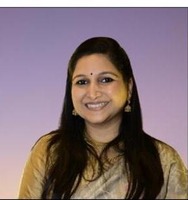 | CORPORATE GOVERNANCE PRACTICES UNDER THE COMPANIES ACT, 2013: A STUDY ON SELECT BSE LISTED COMPANIES. |
| 3 | 2017-18 | RSCOM J&MC | ANKITA AGARWAL | 1170704 | DR. N. ROHIN KANTA SINGH | DR. RUPARANI SONOWAL | 31-08-2023 | 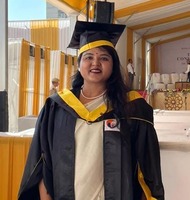 | USAGE PATTERN OF WHATSAPP AMONG THE STUDENTS OF SELECTED UNIVERSITIES OF ASSAM. |
| 4 | 2018-19 | RSCOM J&MC | FARHA YASHMIN ROHMAN | 1181179 | DR. N. ROHIN KANTA SINGH | DR. RUPARANI SONOWAL | 31-08-2023 |  | PORTRAYAL OF IDENTITY ON FACEBOOK WITH REFERENCE TO STUDENT LEADERS IN ASSAM. |
| 5 | 2018-19 | RSET COMPUTER SCIENCE ENGINEERING | MAYURI SHARMA | 1170703 | PROF. (DR.) ANKUR GANGULY | "DR. ANIRUDDHA DEKA DR. CHANDAN JYOTI KUMAR" | 16-10-2023 |  | DESIGN AND DEVELOPMENT OF MACHINE LEARNING BASED FRAMEWORK FOR DIAGNOSING DISEASE AND DEFICIENCY IN RICE PLANTS. |
| 6 | 2018-19 | RSHSS ECONOMICS | ALAKESH KALITA | 1181181 | PROF. (DR.) SWABERA ISLAM | PROF. (DR.) GAUTAM MAZUMDER | 16-10-2023 |  | MICROFINANCE AS THE DRIVER OF INCOME AND EMPLOYMENT: AN ANALYSIS OF SOCIO ECONOMIC CONDITION IN UNDIVIDED BARPETA DISTRICT OF ASSAM. |
| 7 | 2018-19 | RSHSS ECONOMICS | DURBA DUTA | 1170722 | DR. MOHAMMED DELUWAR HOQUE | DR. RABIN JYOTI KHATANIAR | 16-10-2023 | 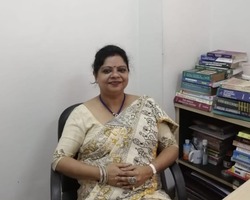 | AN ASSESSMENT OF URBAN POVERTY AND ITS DETERMINANTS: WITH SPECIAL REFERENCE TO THE KAMRUP METRO. |
| 9 | 2017-18 | RSLA LAW & ADMINISTRATION | MEGHNA BORA | 1170709 | PROF. (DR.) H. C. NATH | DR. ANUP HAZARIKA | 30-11-2023 | 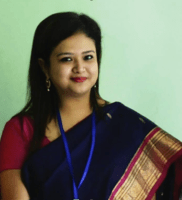 | A STUDY ON INTERNATIONAL AND NATIONAL LEGAL FRAME WORK ON SURROGACY AND ITS CONFORMITY WITH RULE OF LAW. |
| 10 | 2019-20 | RSLA LAW & ADMINISTRATION | PARVEEN ISLAM | 1181196 | PROF. (DR.) H. C. NATH | DR. SMITA SARMAH | 30-11-2023 | 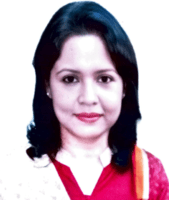 | RIGHT TO EDUCATION OF TRANSGENDER PERSONS IN INDIA WITH SPECIFIC REFERENCE TO THE STATE OF ASSAM: A LEGAL ANALYSIS. |
| 11 | 2020-21 | RSBSC BIO-TECHNOLOGY | INDUKALPA DAS | 1191459 | DR. DEBAJIT BORAH | DR. BIDISHA SHARMA | 28-02-2024 |  | BIOSURFACTANT MEDIATED GREEN SYNTHESIS OF METAL NANO PARTICLES FOR ENHANCING SEED GERMINATION AND ANTIMICROBIAL APPLICATIONS. |
| 12 | 2018-19 | RSLA LAW & ADMINISTRATION | SANDEEP MISHRA | 1170720 | PROF. (DR.) H. C. NATH | PROF. (DR.) NALINI KANTA DUTTA | 28-02-2024 |  | PARDONING POWER AND JUDICIAL REVIEW: A COMPARATIVE STUDY( WITH SPECIAL REFERENCE TO THE CONSTITUTION OF INDIA). |
| 13 | 2019-20 | RSTTM TRAVEL & TOURISM MANAGEMENT | INDRAJIT DUTTA | 1190018 | PROF. (DR.) SOUMITRA SEN | DR. DHARMA RAM DEKA | 28-02-2024 | 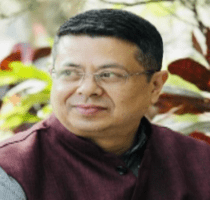 | A STUDY ON RURAL TOURISM IN RI-BHOI DISTRICT OF MEGHALAYA: PROSPECTS AND CHALLENGES. |
| 14 | 2019-20 | RSET CIVIL ENGINEERING | SUDIPTA CHAKRABORTY | 1190004 | PROF. (DR.) ARNAB SARMA | DR. A. R. KAMBEKAR | 28-03-2024 |  | SEA LEVEL RISE DUE TO CLIMATE CHANGE AND ITS IMPACT ALONG THE COAST OF MUMBAI. |
| 15 | 2019-20 | RSBSC BIO-TECHNOLOGY | VANSHIKA SHARMA | 1181198 | DR. RANJAN DUTTA KALITA | DR. AJANITA MAZUMDAR | 31-05-2024 |  | "WOUND HEALING AND ANTIMICROBIAL PROPERTIES OF KAEMPFERIA GALANAGA L. AND FORMULATION OF TOPICAL AOOLICATIONS." |
| 16 | 2018-19 | RSAPS MATHEMATICS | BIKASH KOLI SAHA | 1181166 | DR. KAMAL DEBNATH | 31-05-2024 |  | "BEHAVIOURAL STUDY OF VISCO ELASTIC FLUID FLOW CHARACTERIZED BY WALTERS LIQUID (MODEL B-)." | |
| 17 | 2018-19 | RSC COMMERCE | KAMAL MOUR | 1170716 | DR. SUDIP CHAKRABORTY | PROF. N. B. DEY | 28-06-2024 |  | IMPACT OF INDIAN ACCOUNTING STANDARDS (IND AS) ON THE FINANCIAL STATEMENTS OF SELECT INDIAN COMPANIES. |
| 18 | 2019-20 | RSFA FINE ARTS | LAISHRAM SAMSON SINGH | 1170663 | DR. MOUSUMI DEKA | DR. DEBASISH CHAKRABORTY | 28-06-2024 |  | "INDIAN ABSTRACT ART OF POST INDEPENDENCE ERA: A PHILOSOPHICAL ANALYSIS." |
| 19 | 2018-19 | RSAPS MATHEMATICS | SANKAR SINGHA | 1181167 | DR. KAMAL DEBNATH | 28-06-2024 |  | "SOME ASPECTS OF FLUID FLOW PROBLEMS WITH EMPHASIS ON VISCO-ELASTICITY." | |
| 20 | 2019-20 | RSAPS MATHEMATICS | MD NAZIR HUSSAIN | 1191451 | PROF. (DR.) ANURADHA DEVI | DR. NAVALAKHI HAZARIKA | 28-06-2024 |  | "A STUDY OF DISTRIBUTIVE AND MULTIPLICATION N-GROUPS IN NEARRINGS AND THEIR FUZZY ASPECTS." |